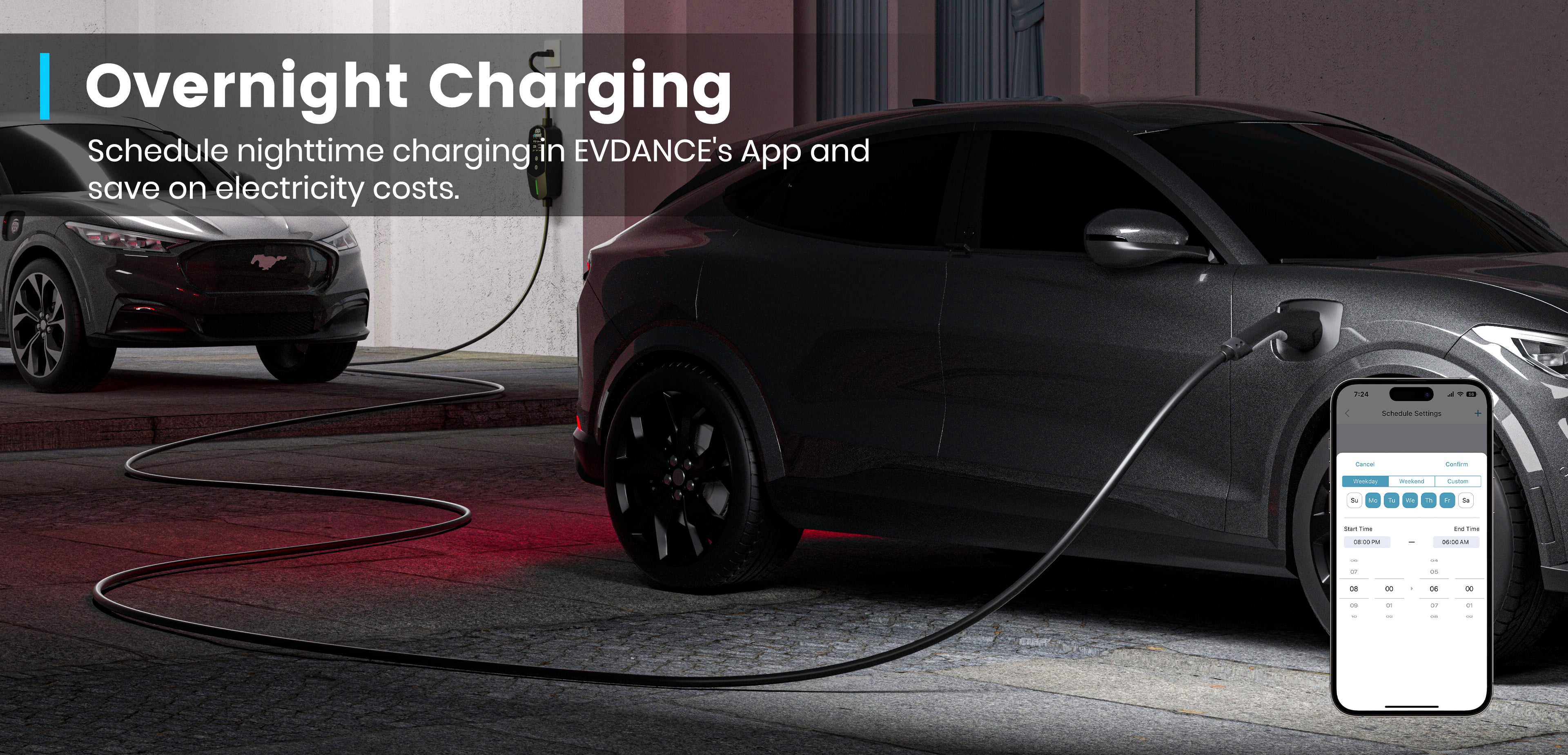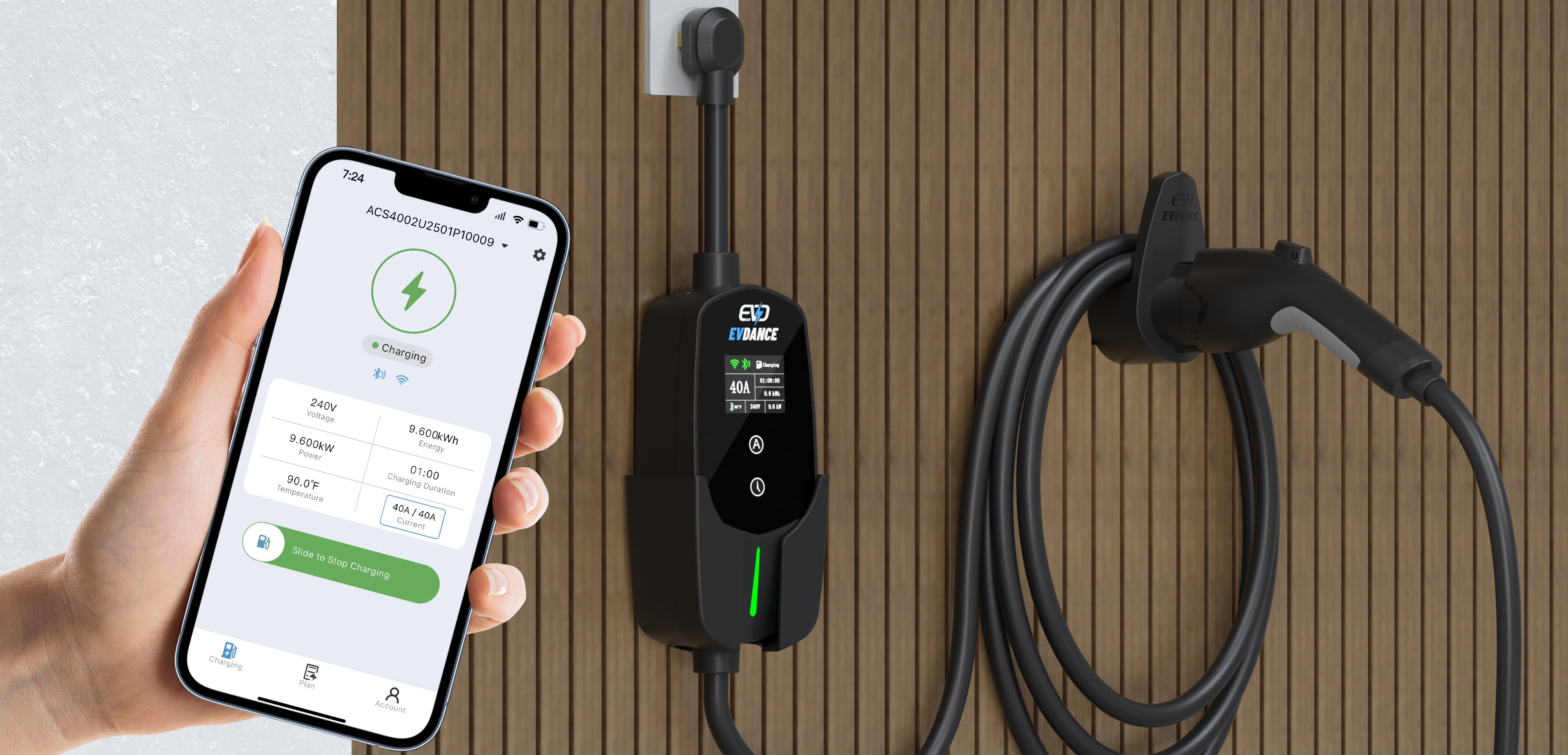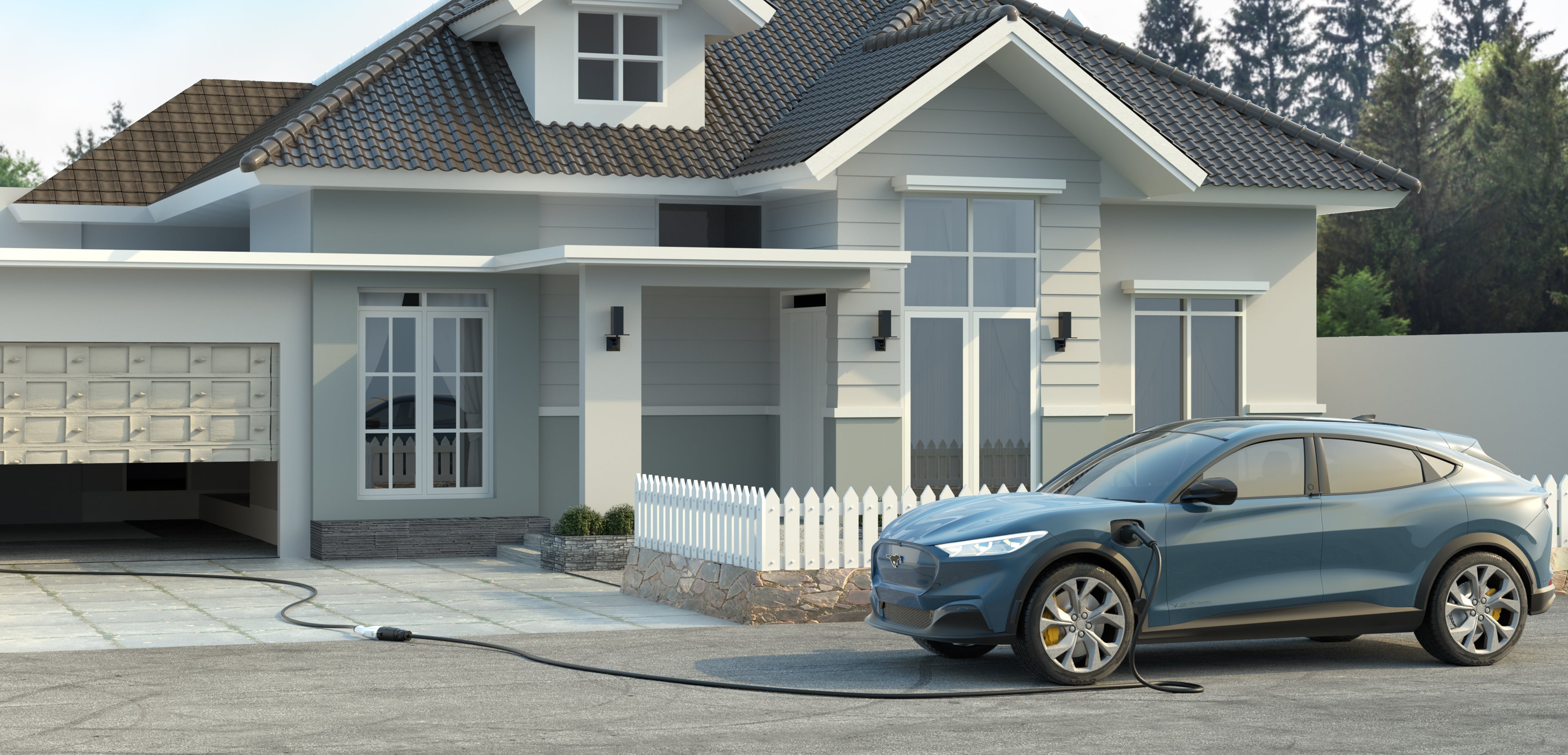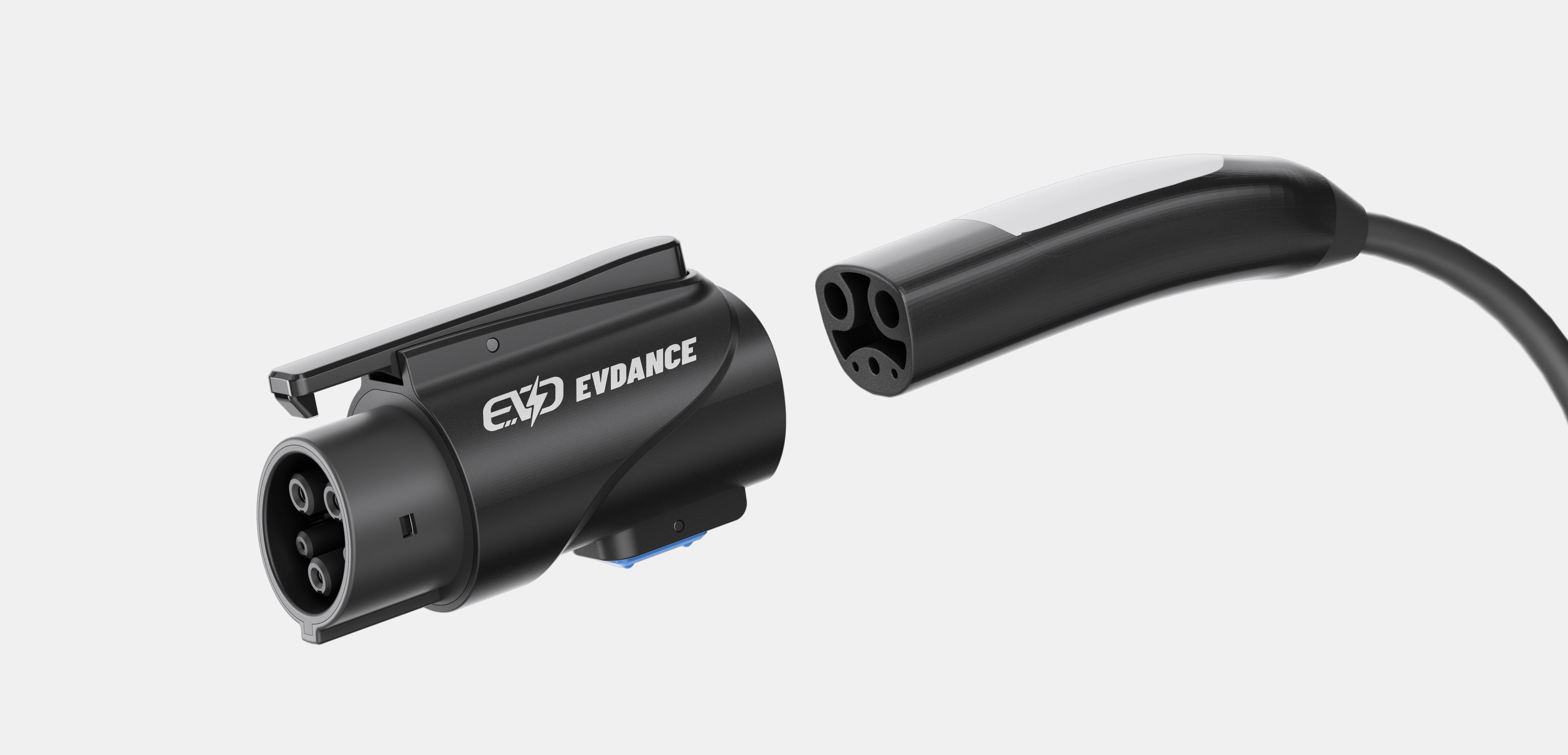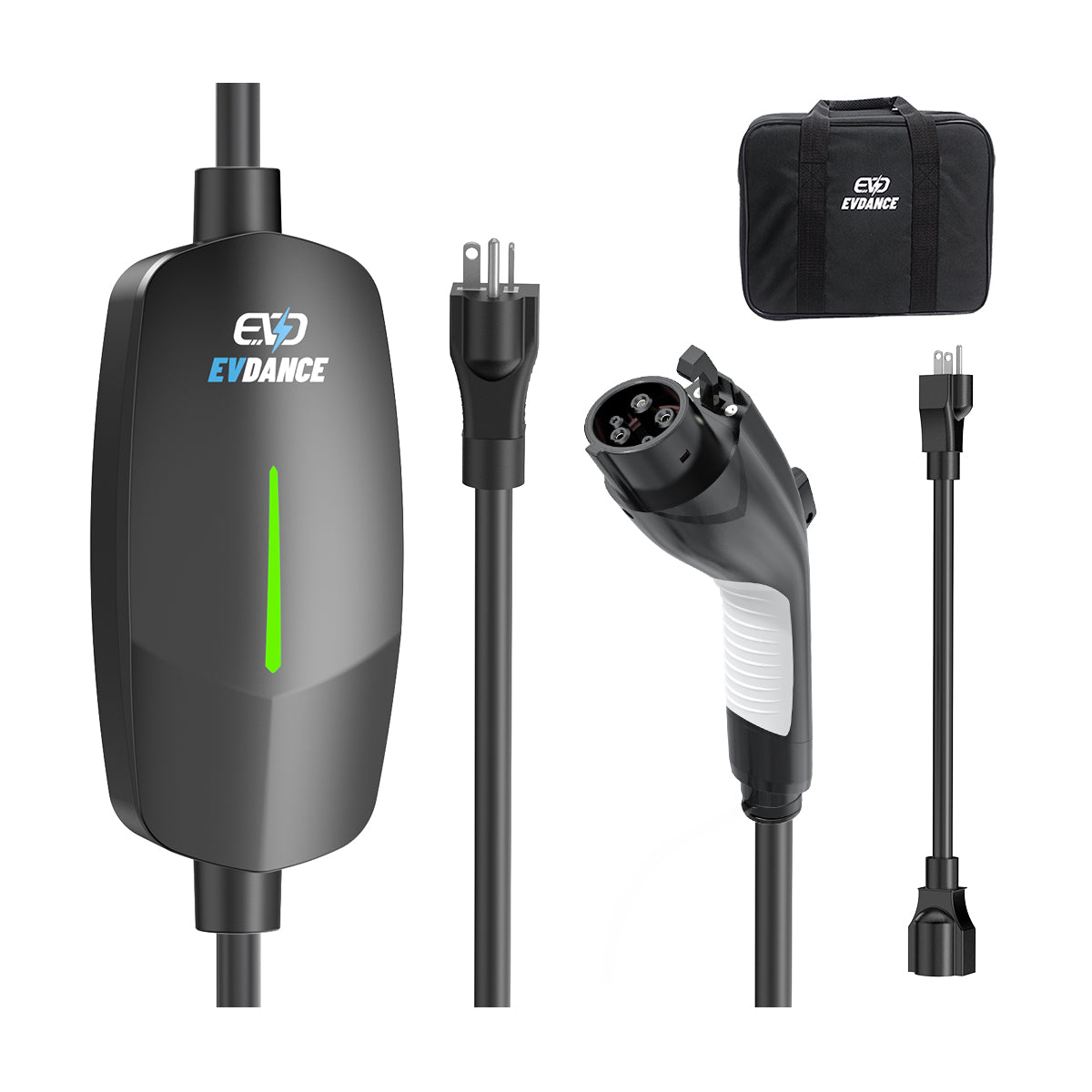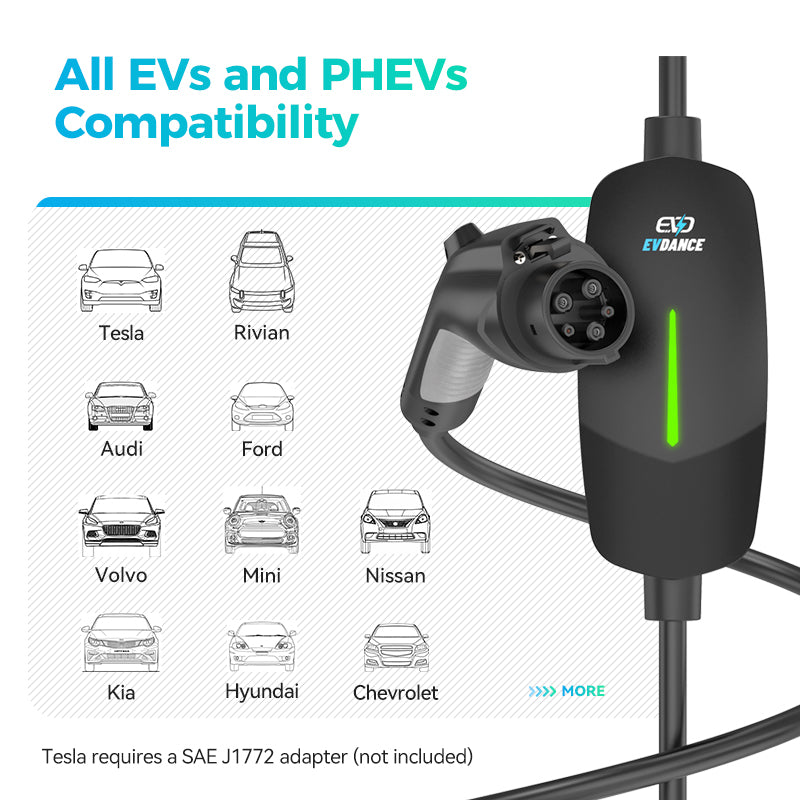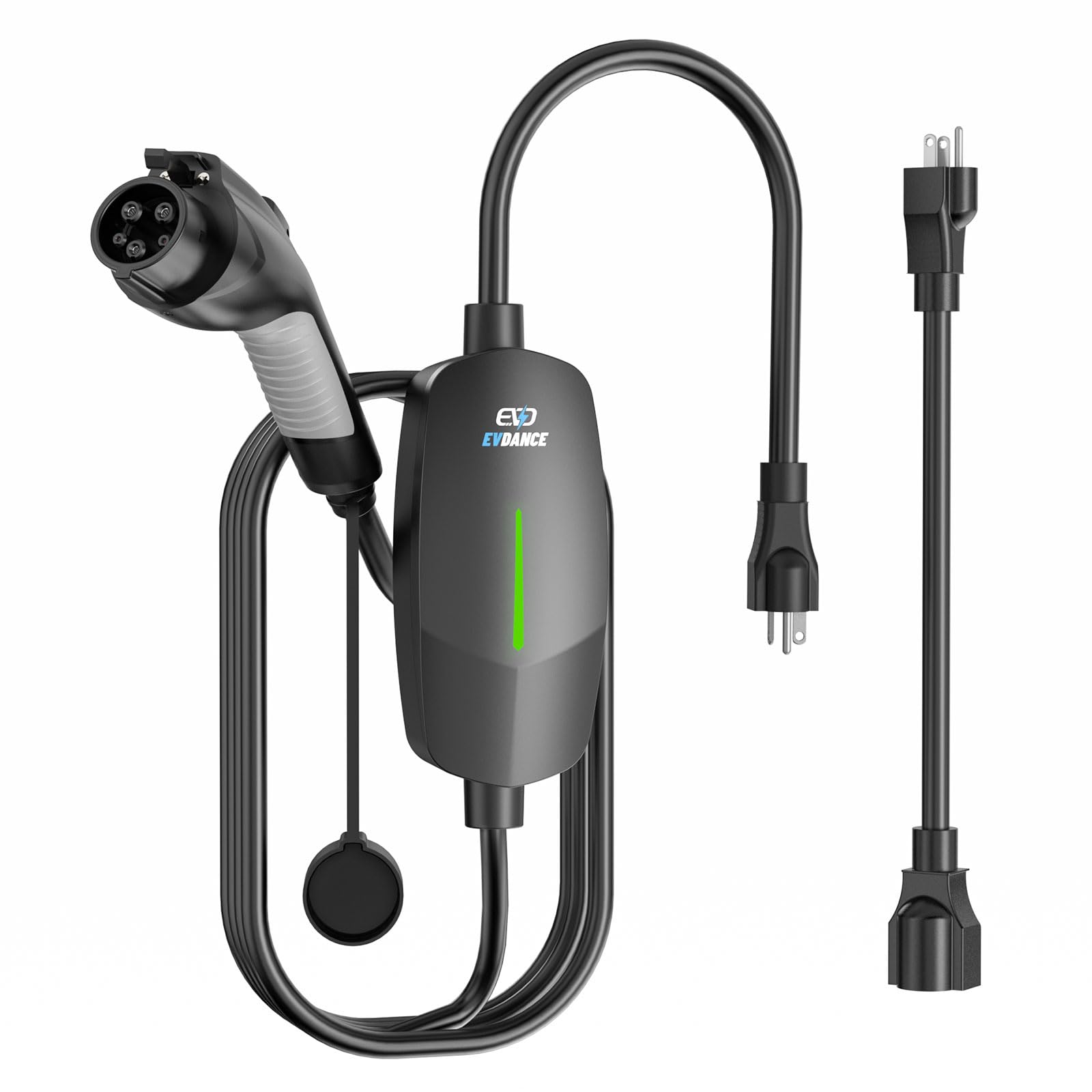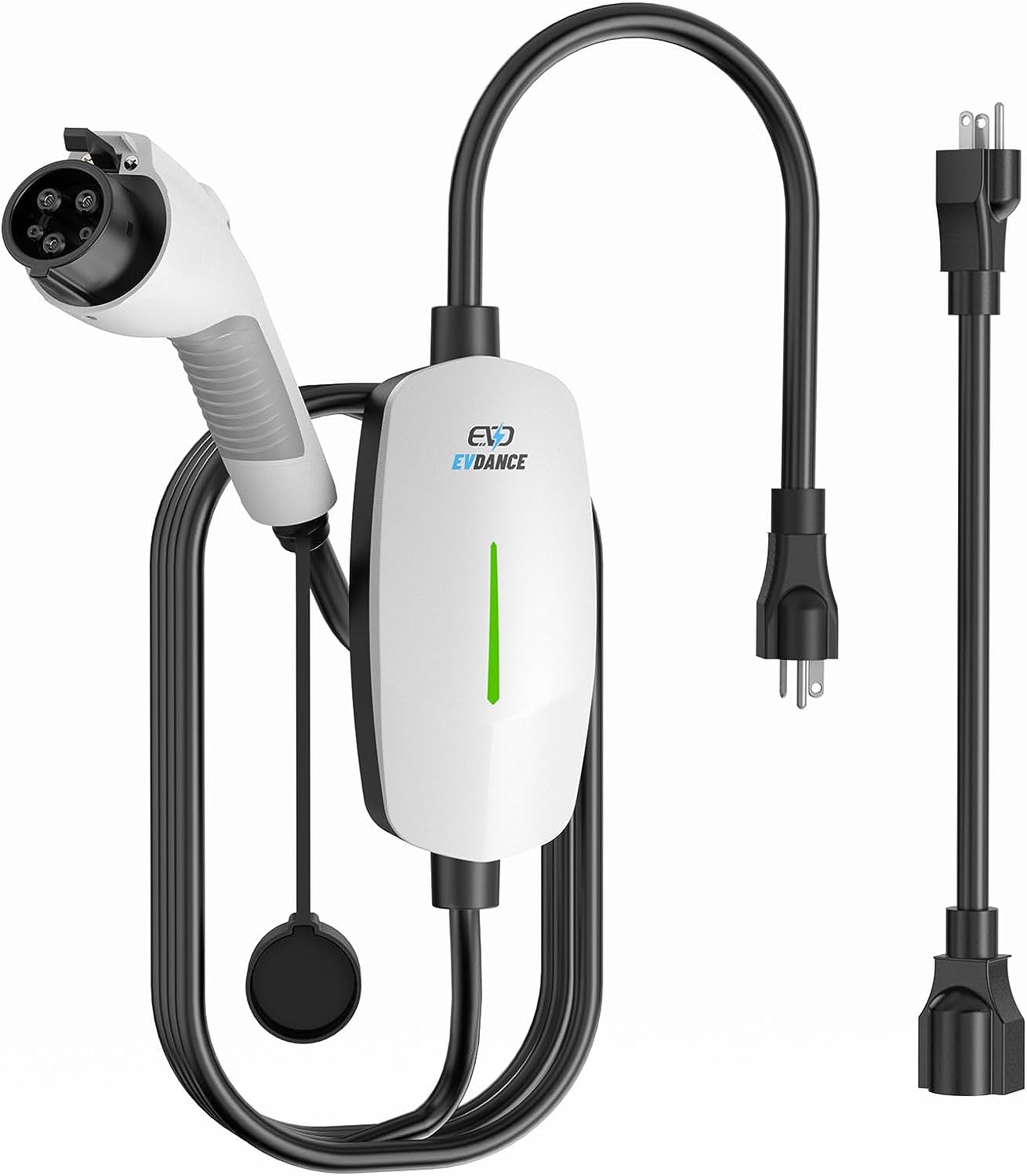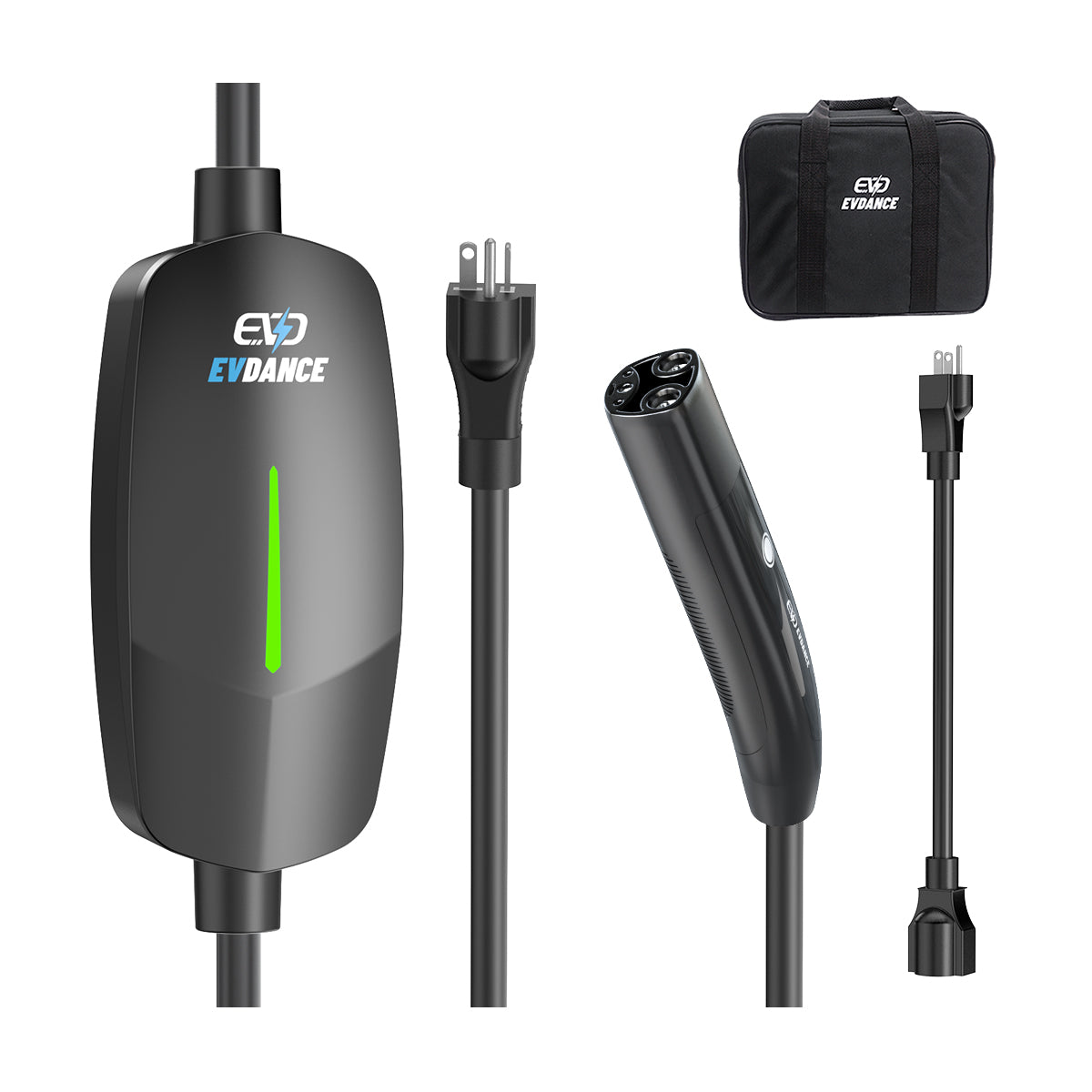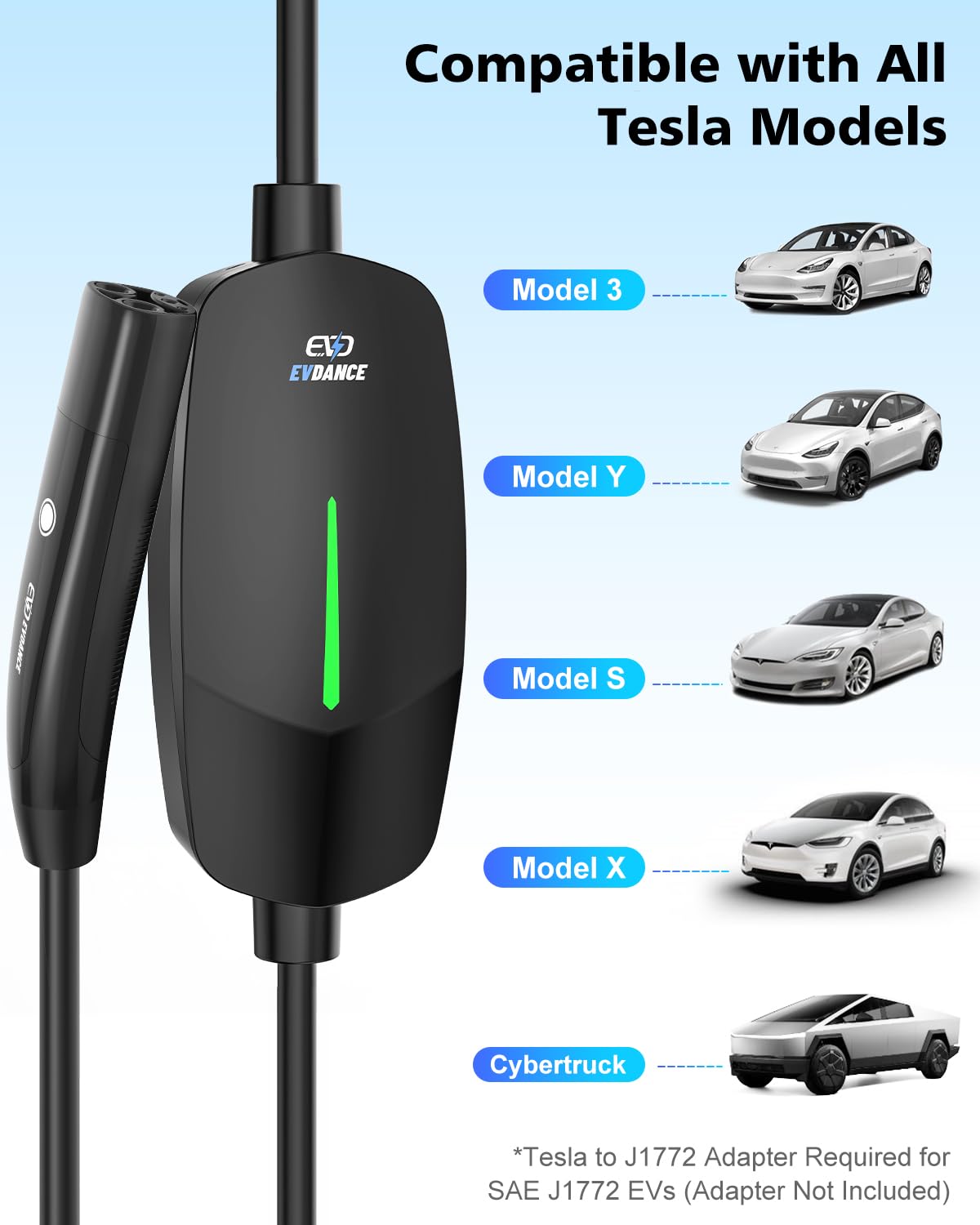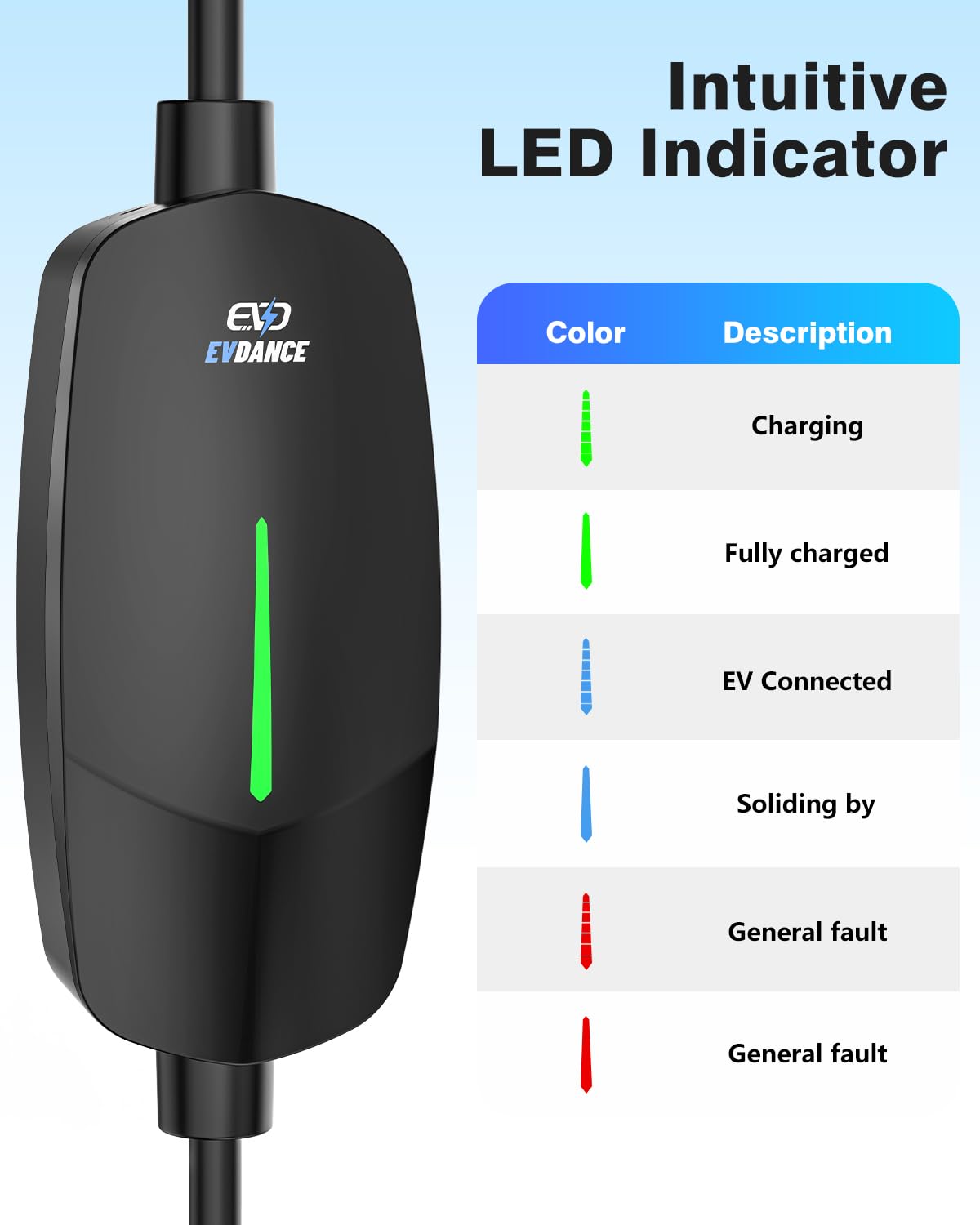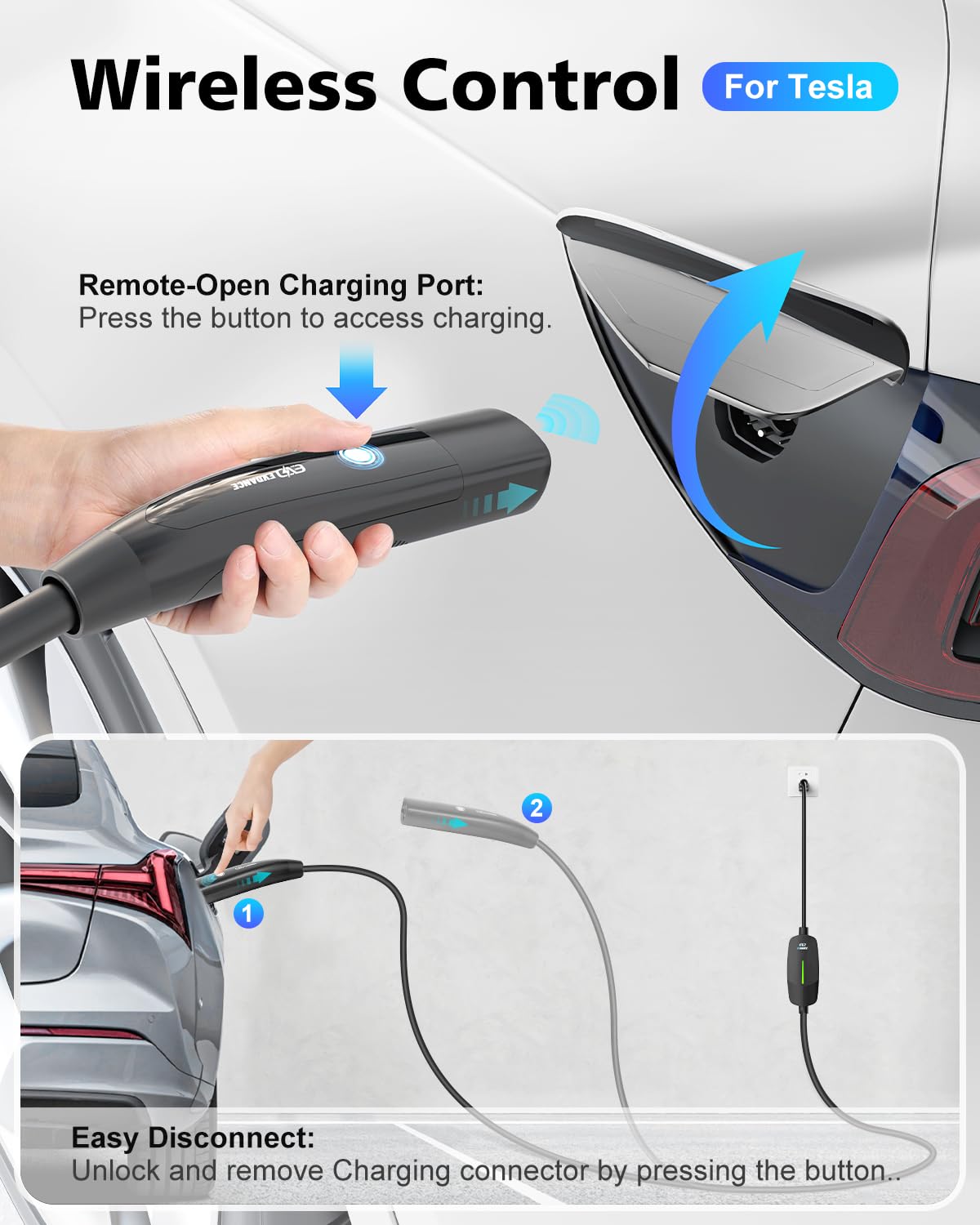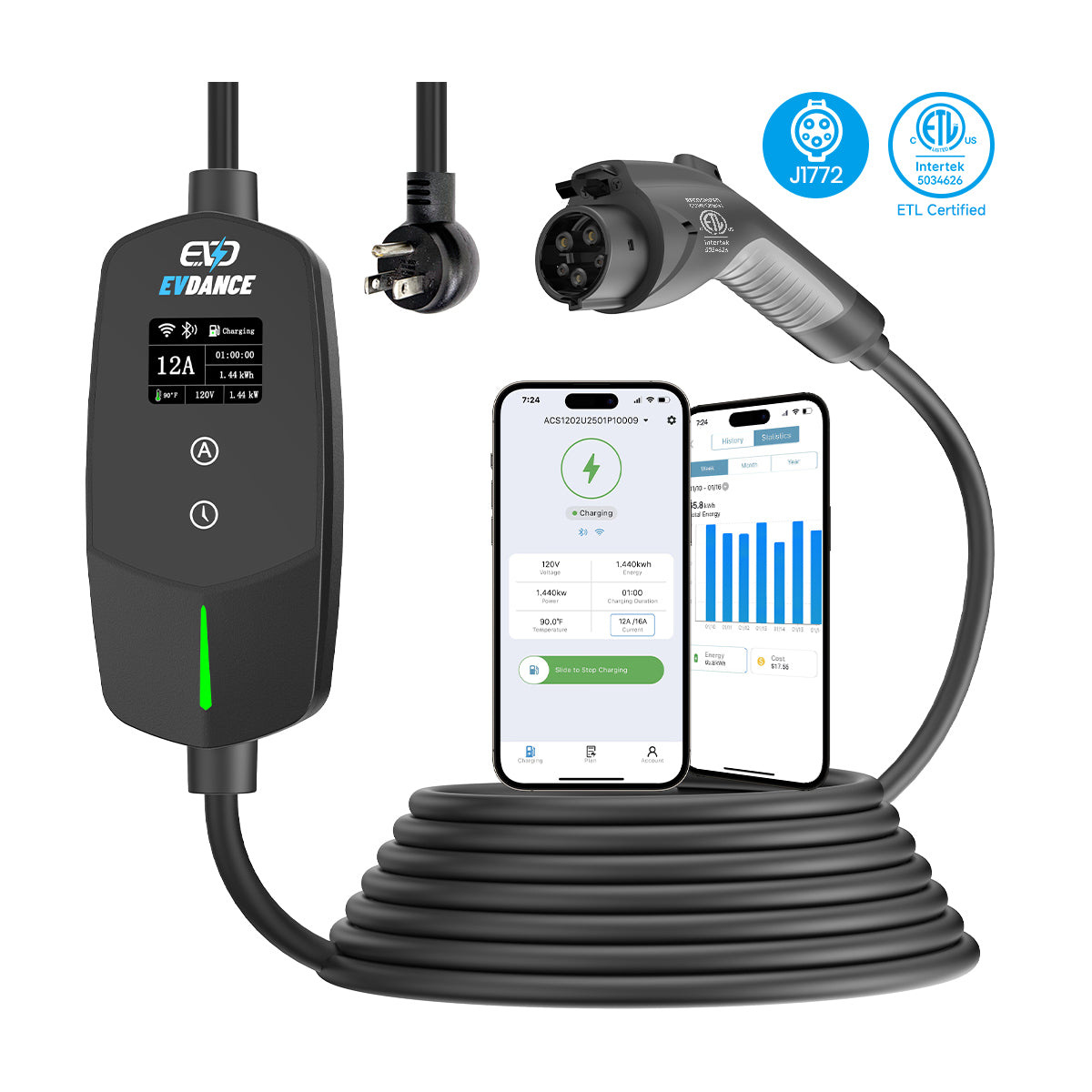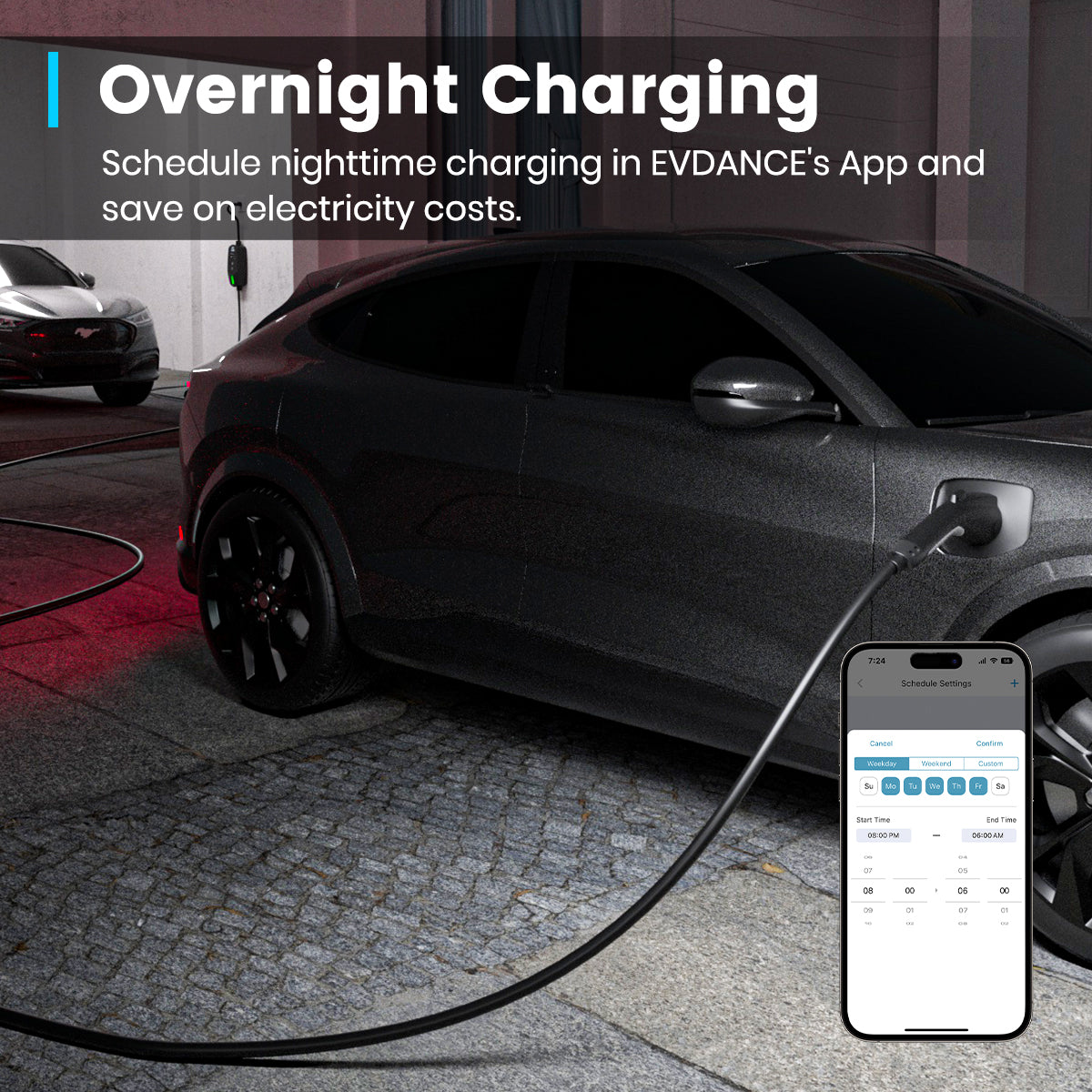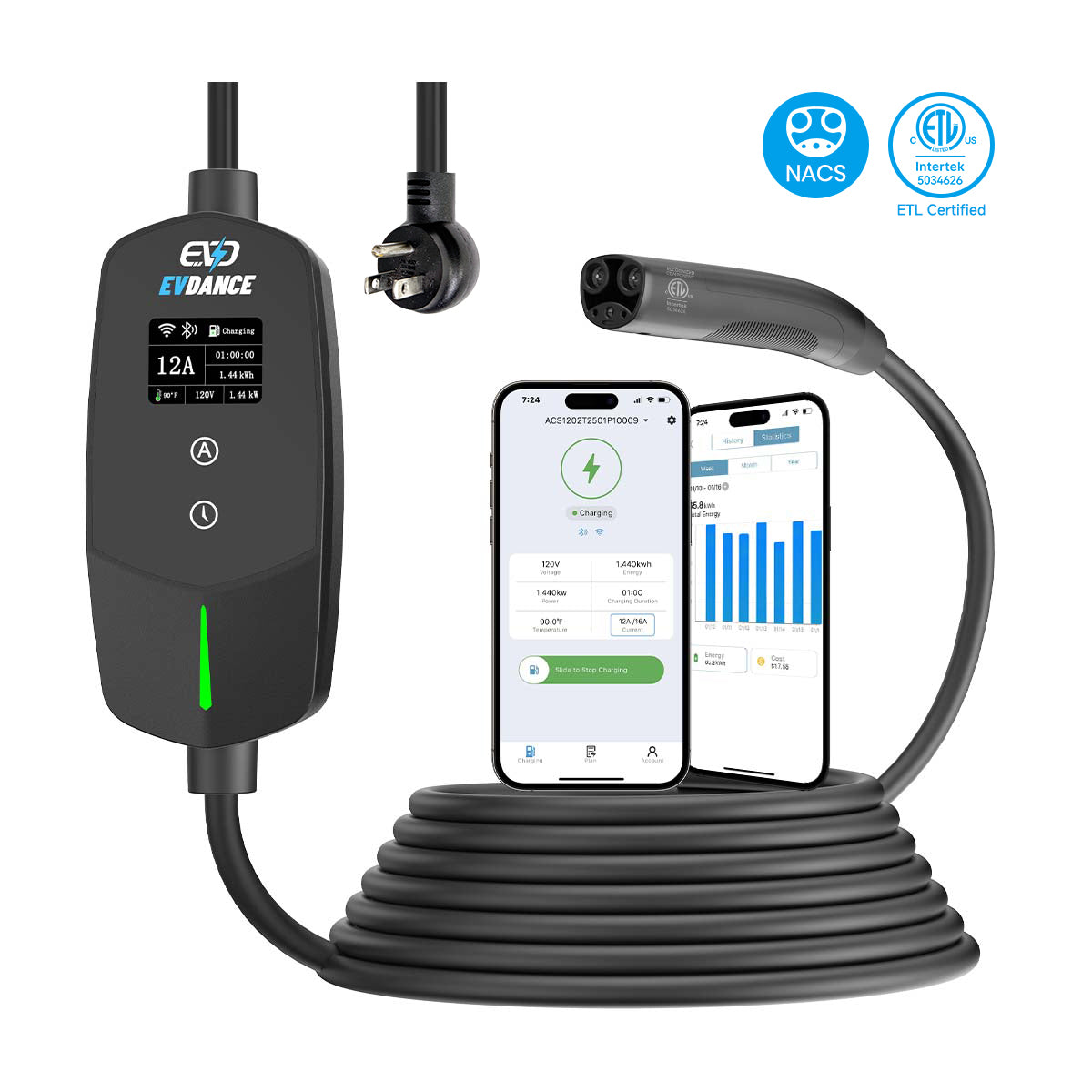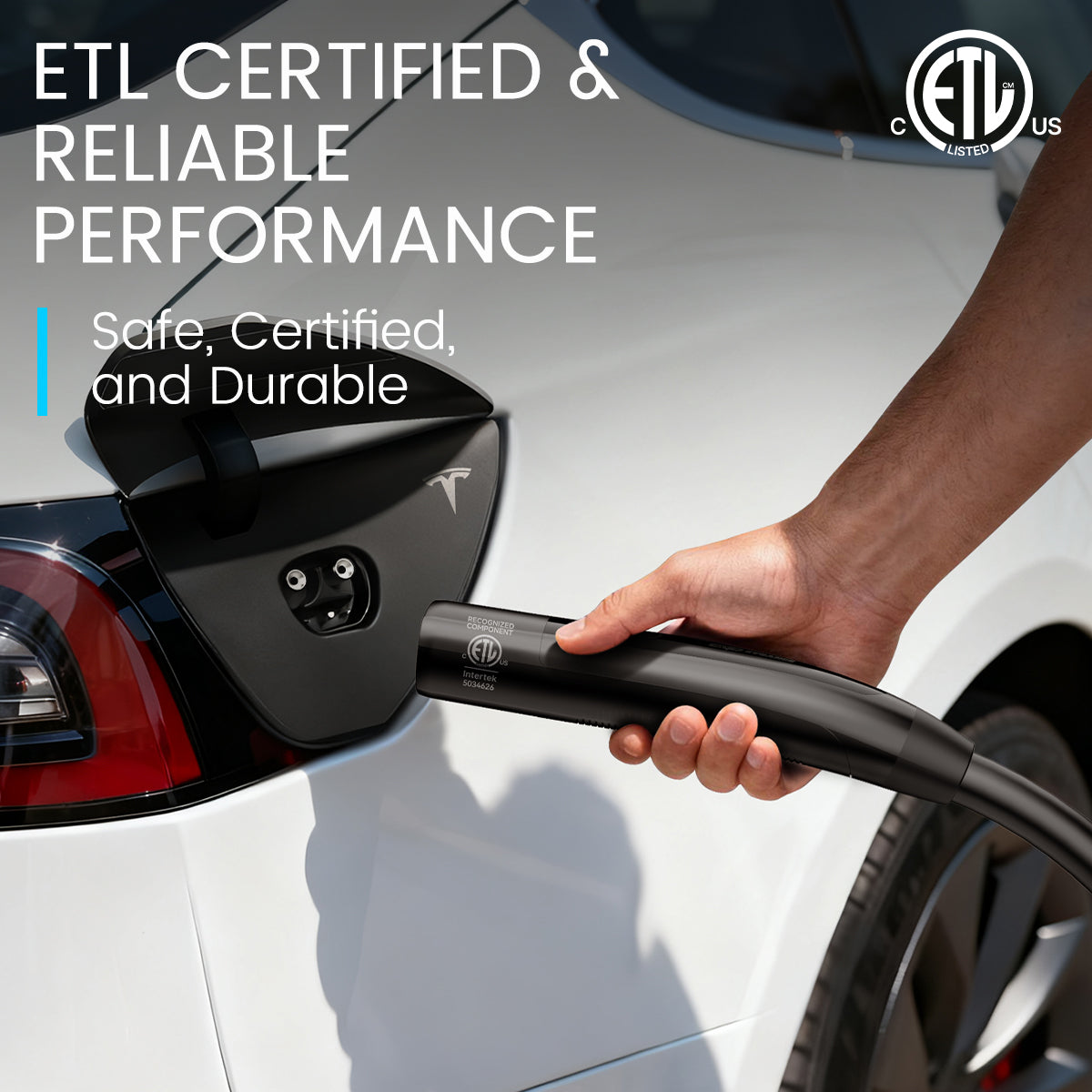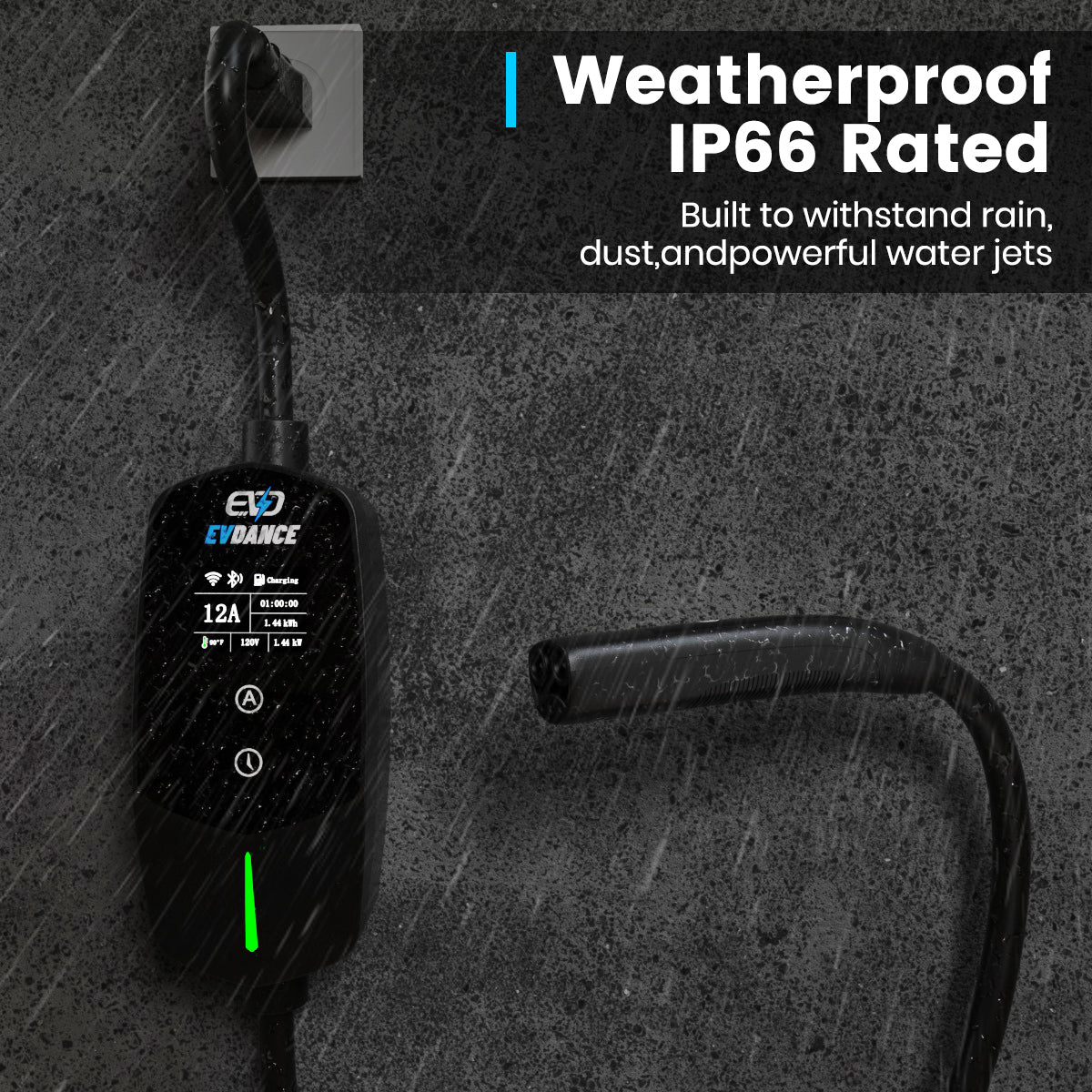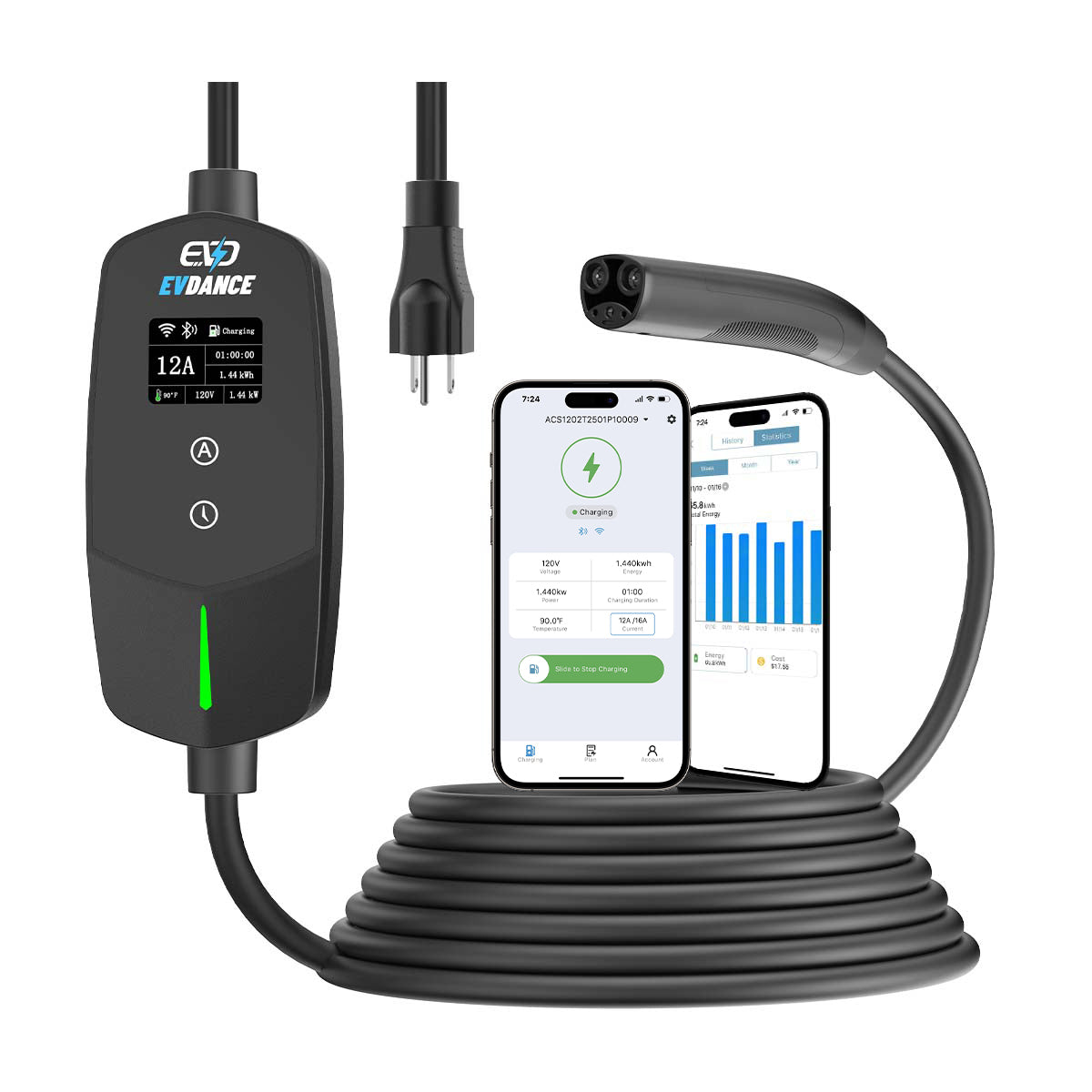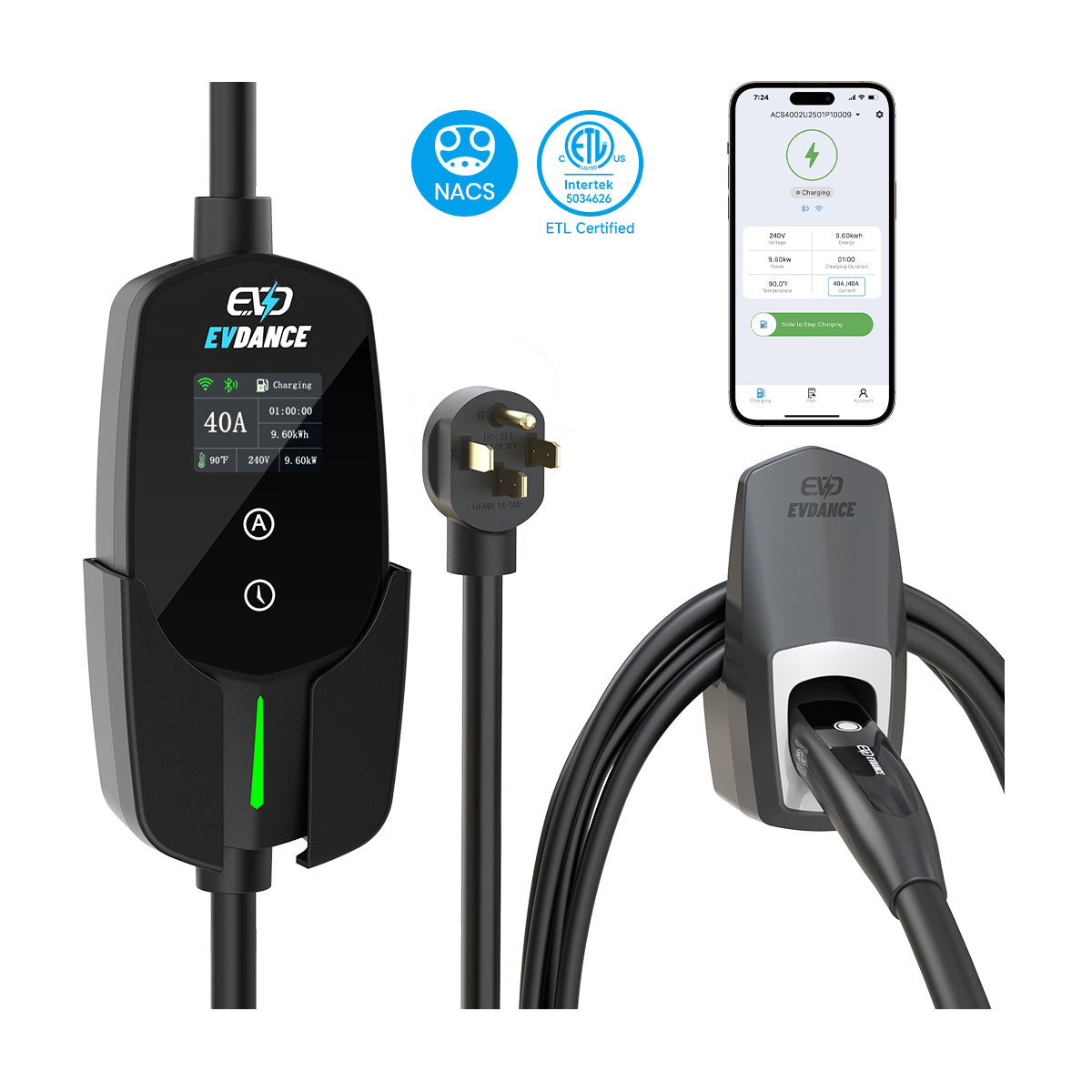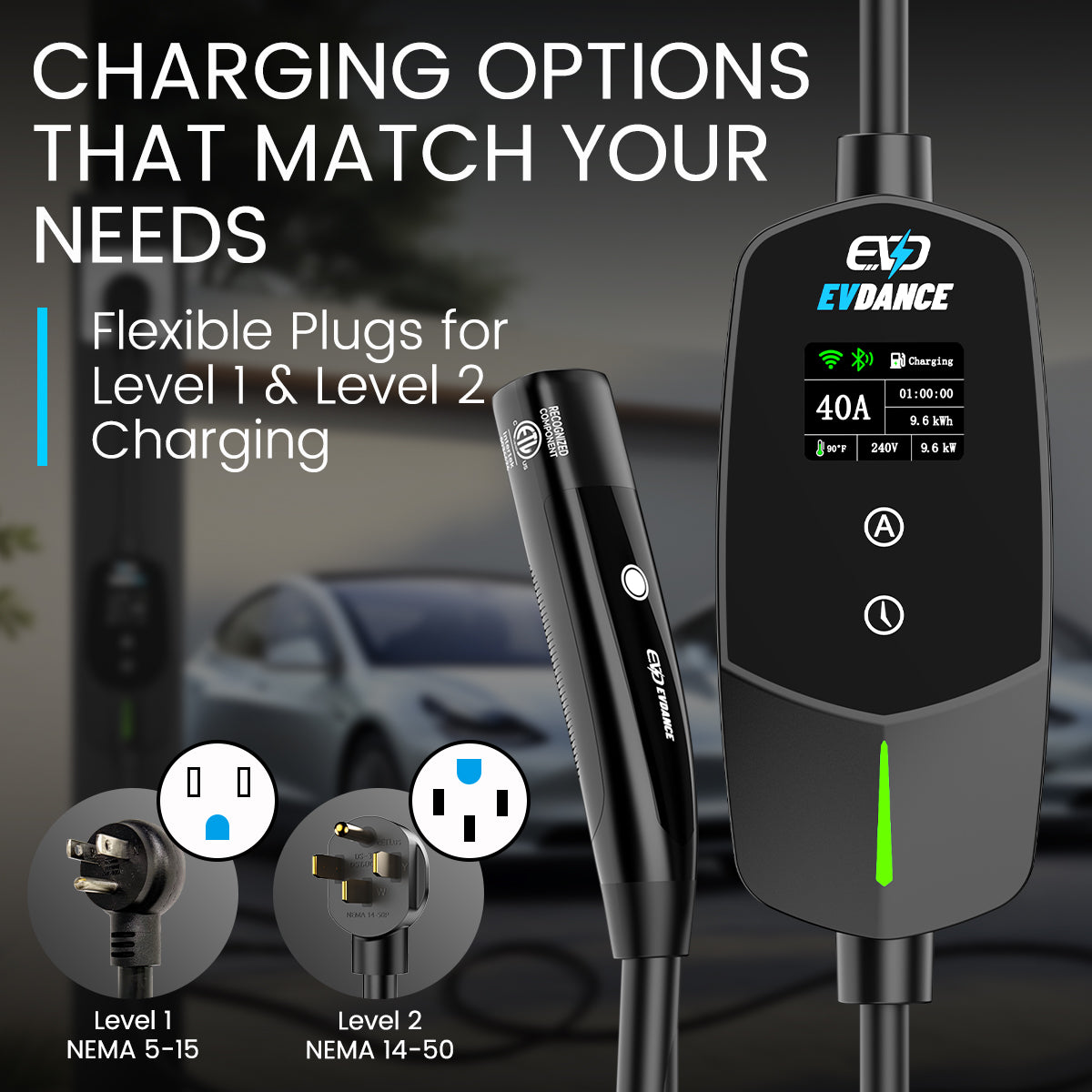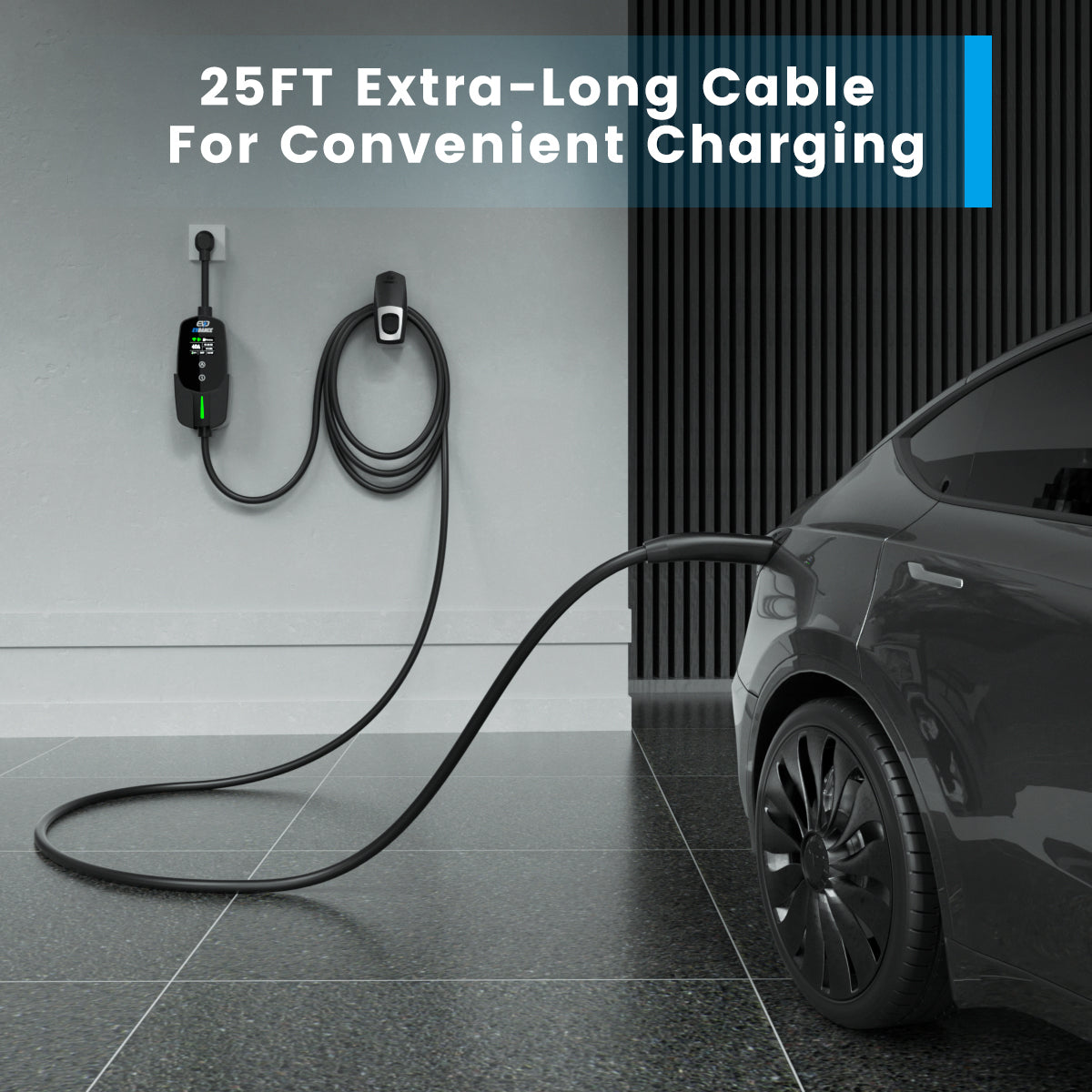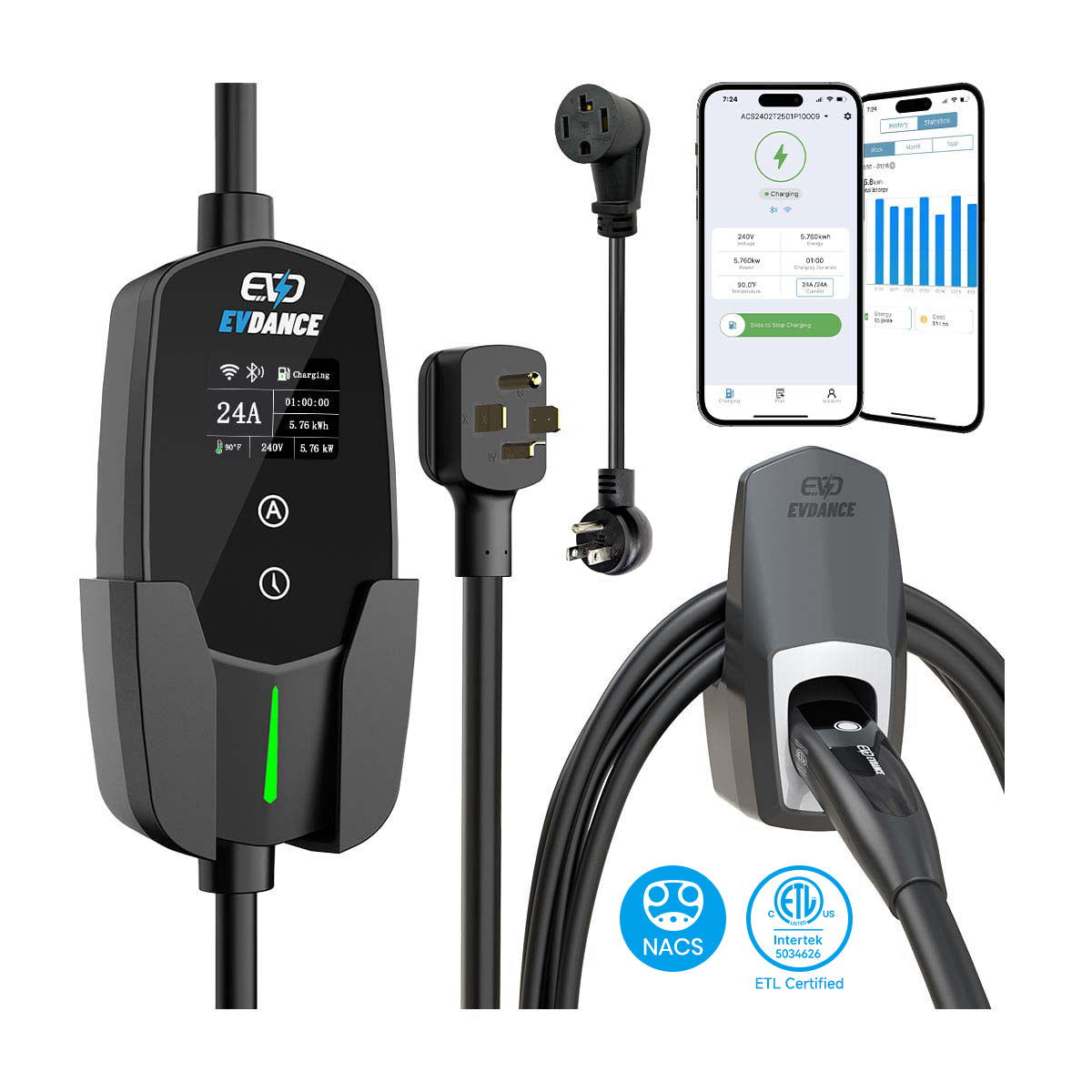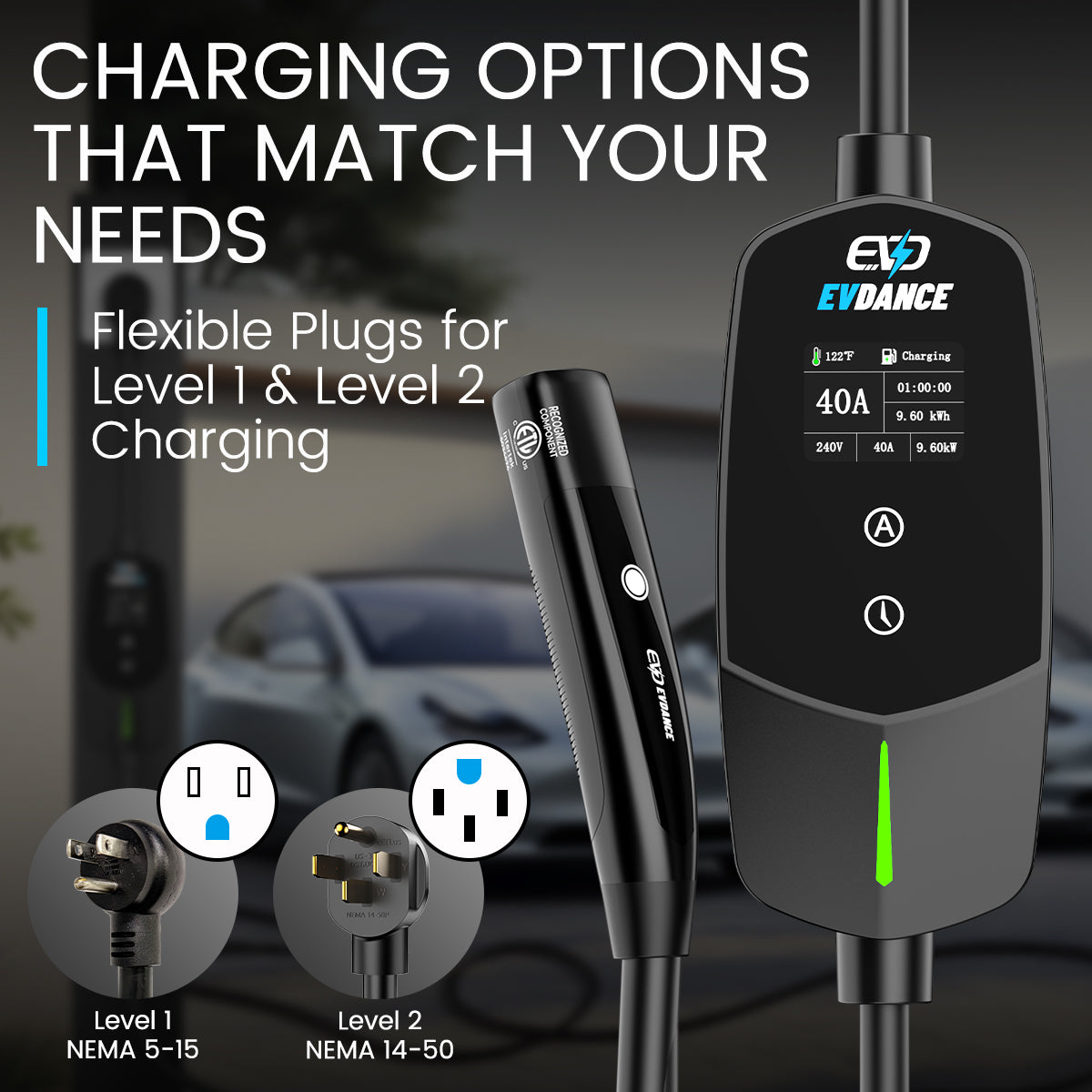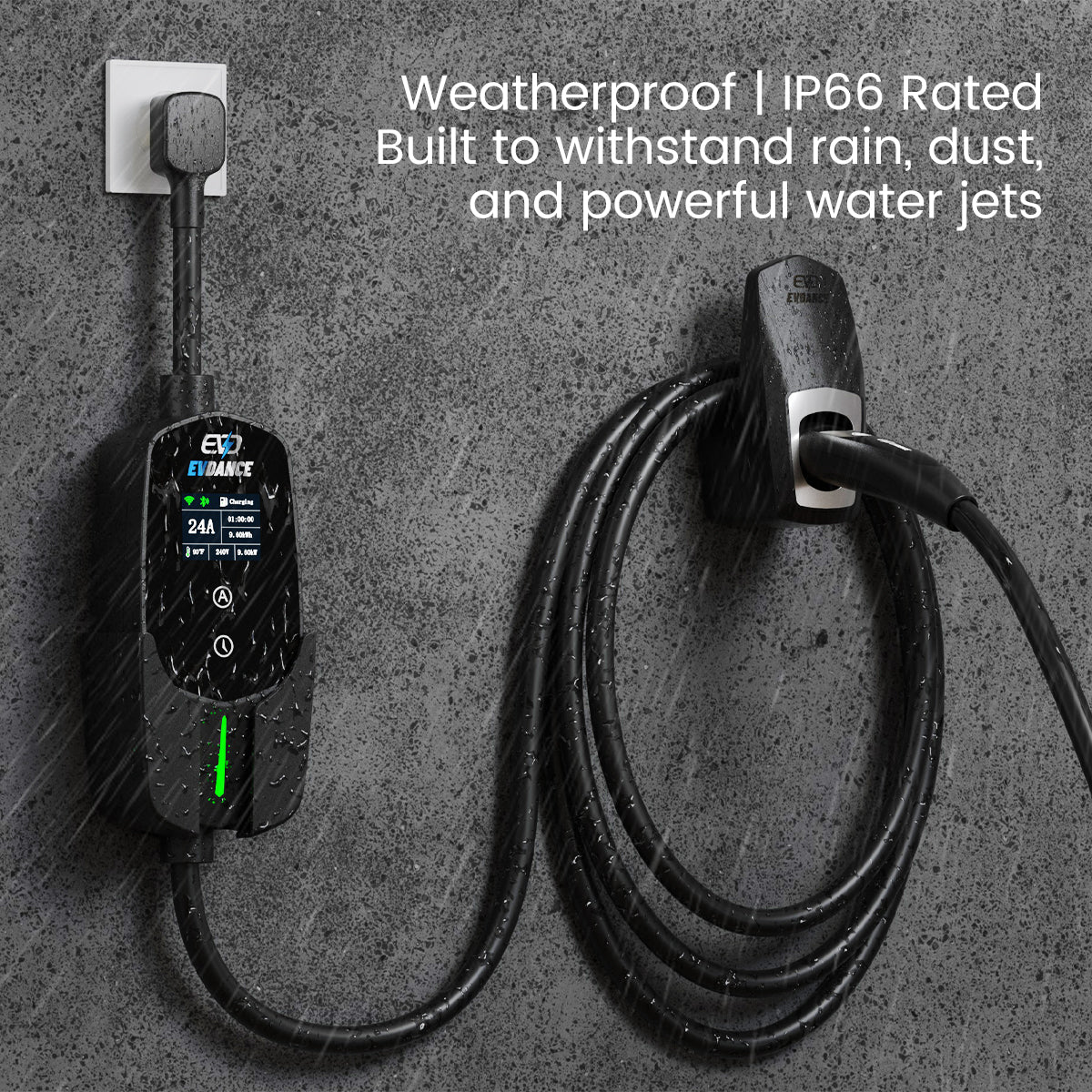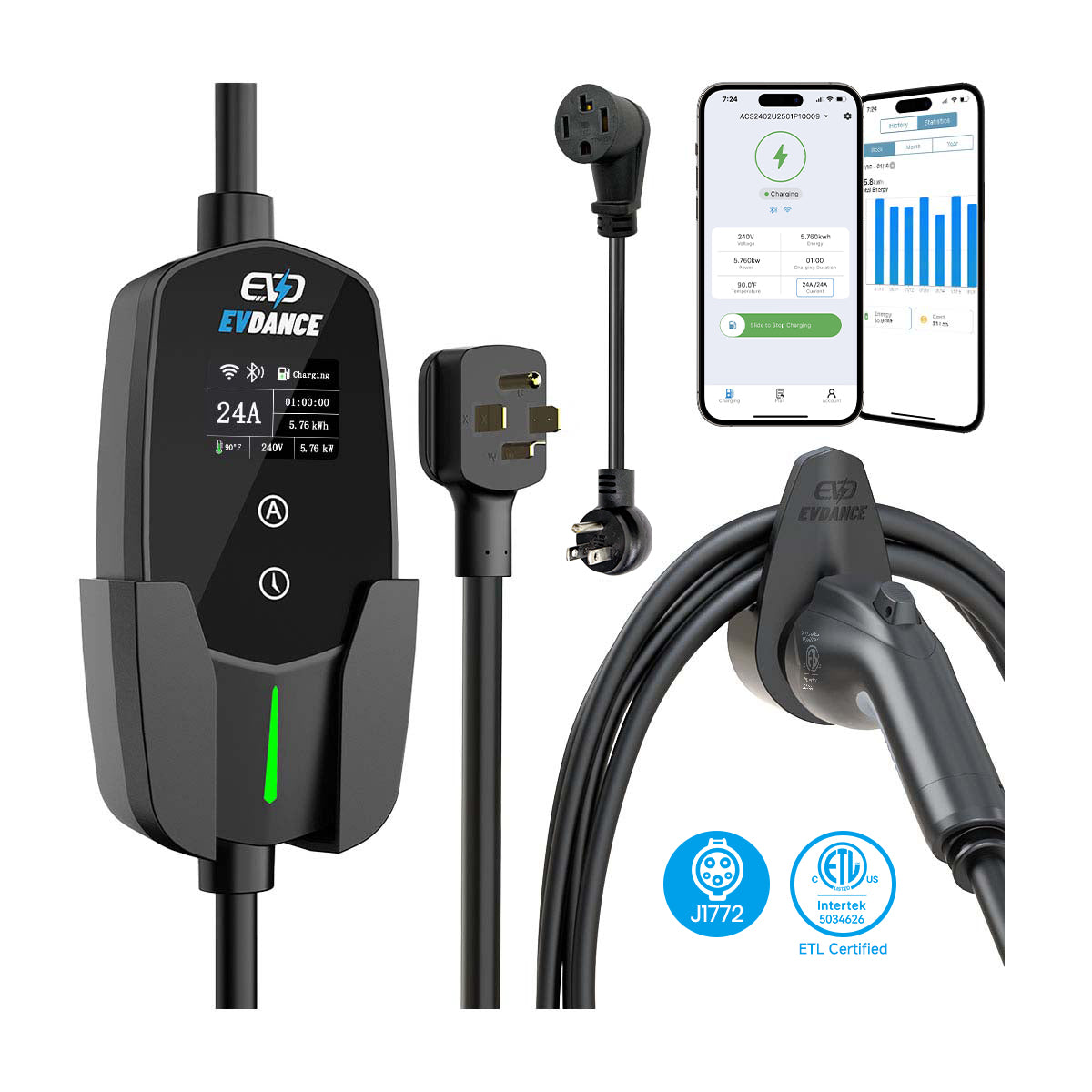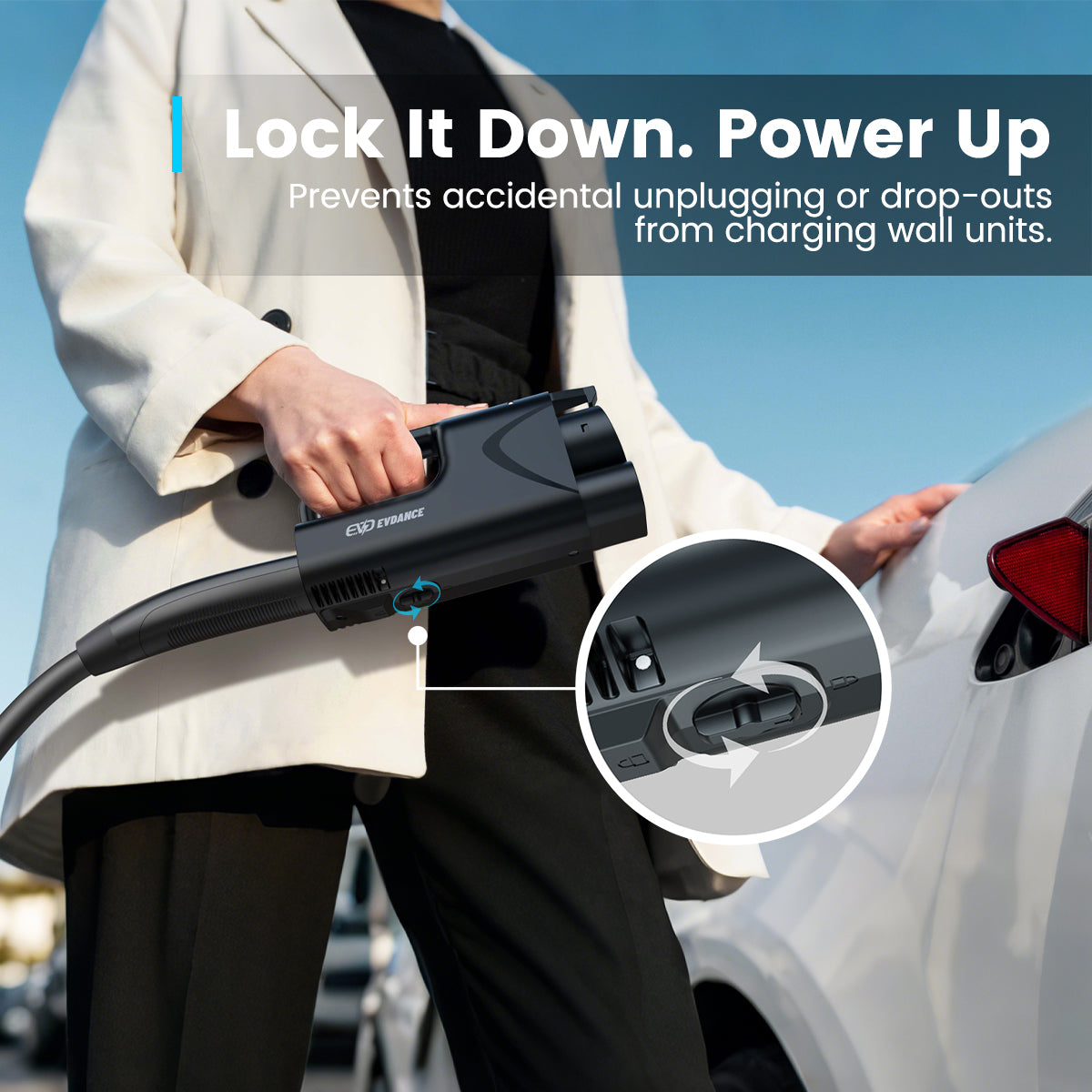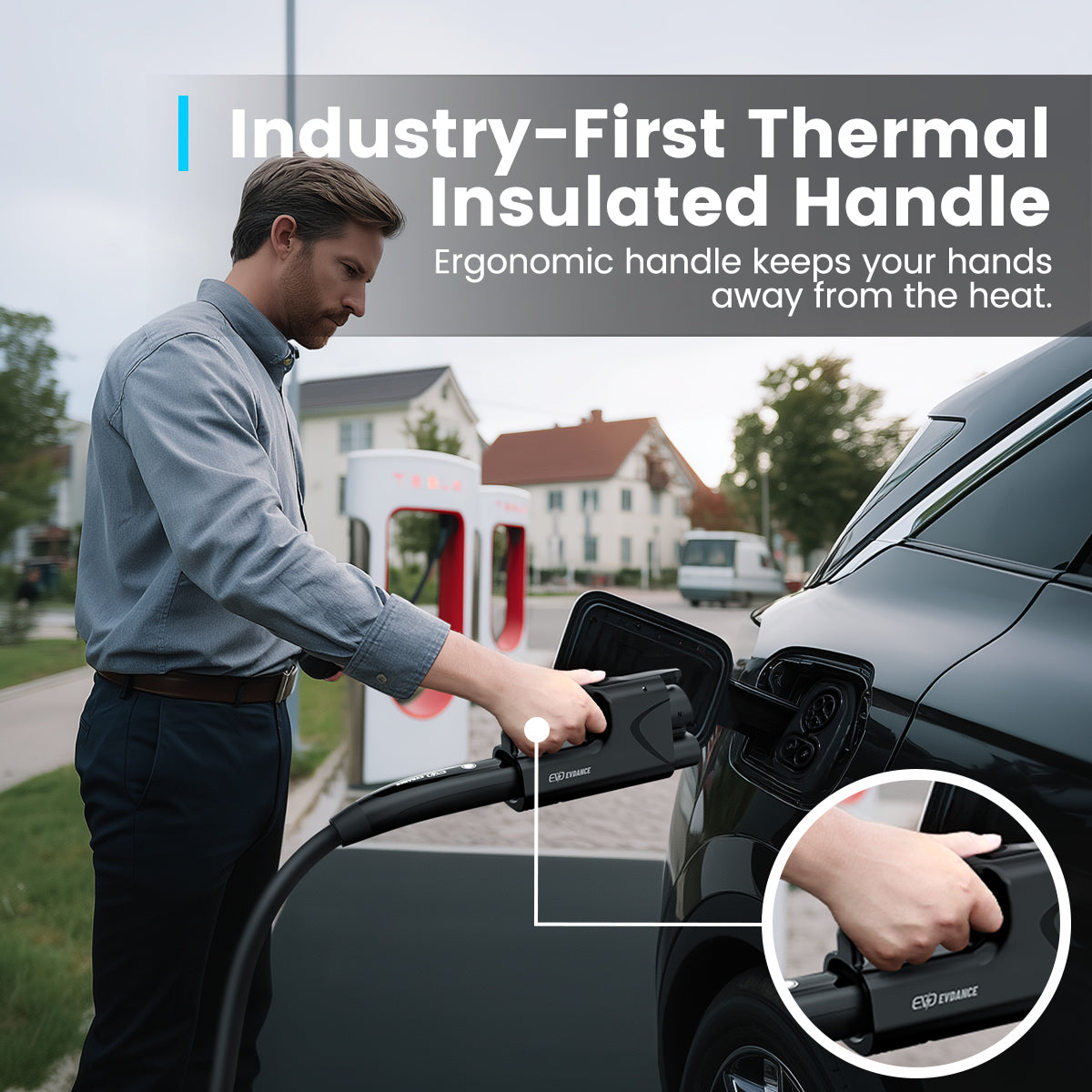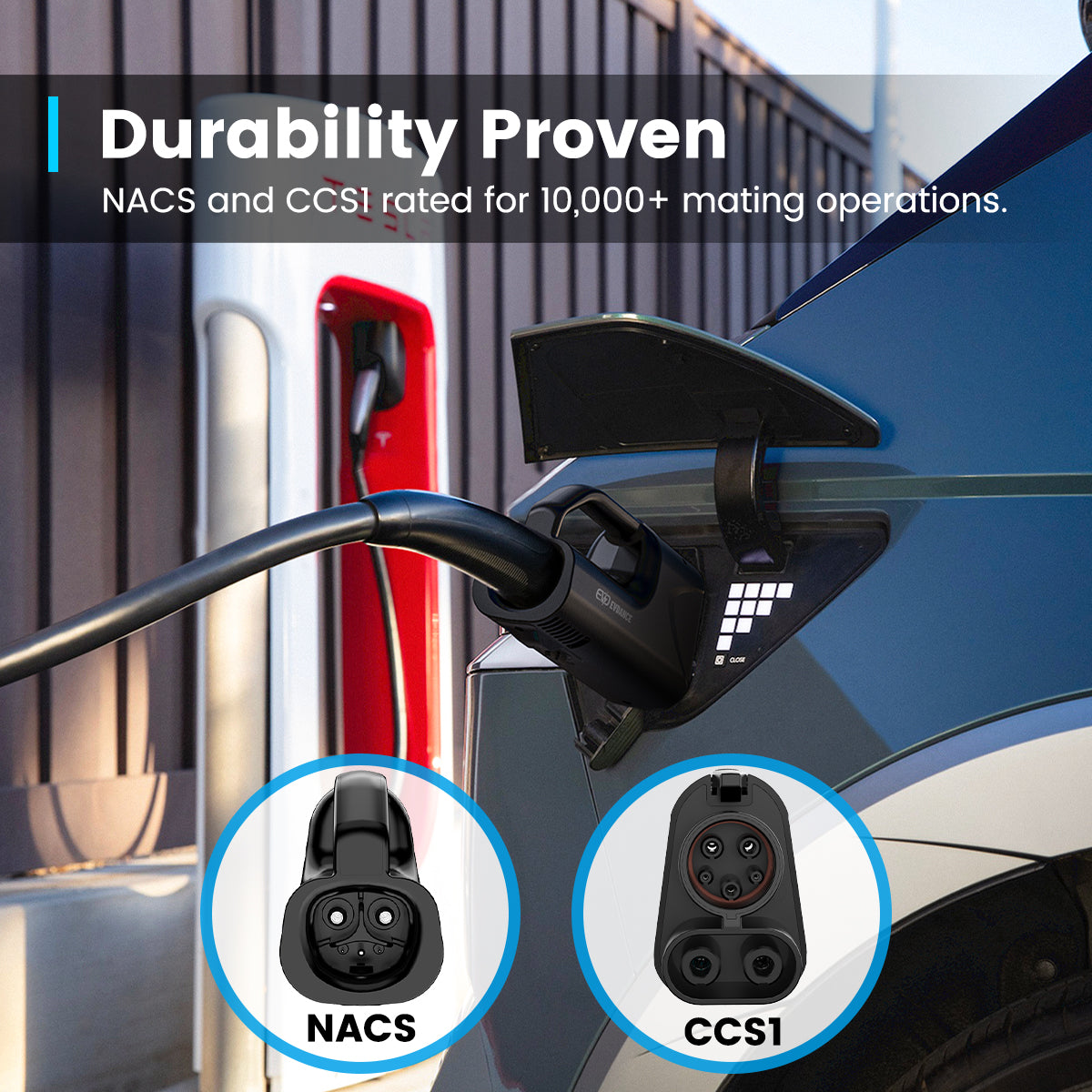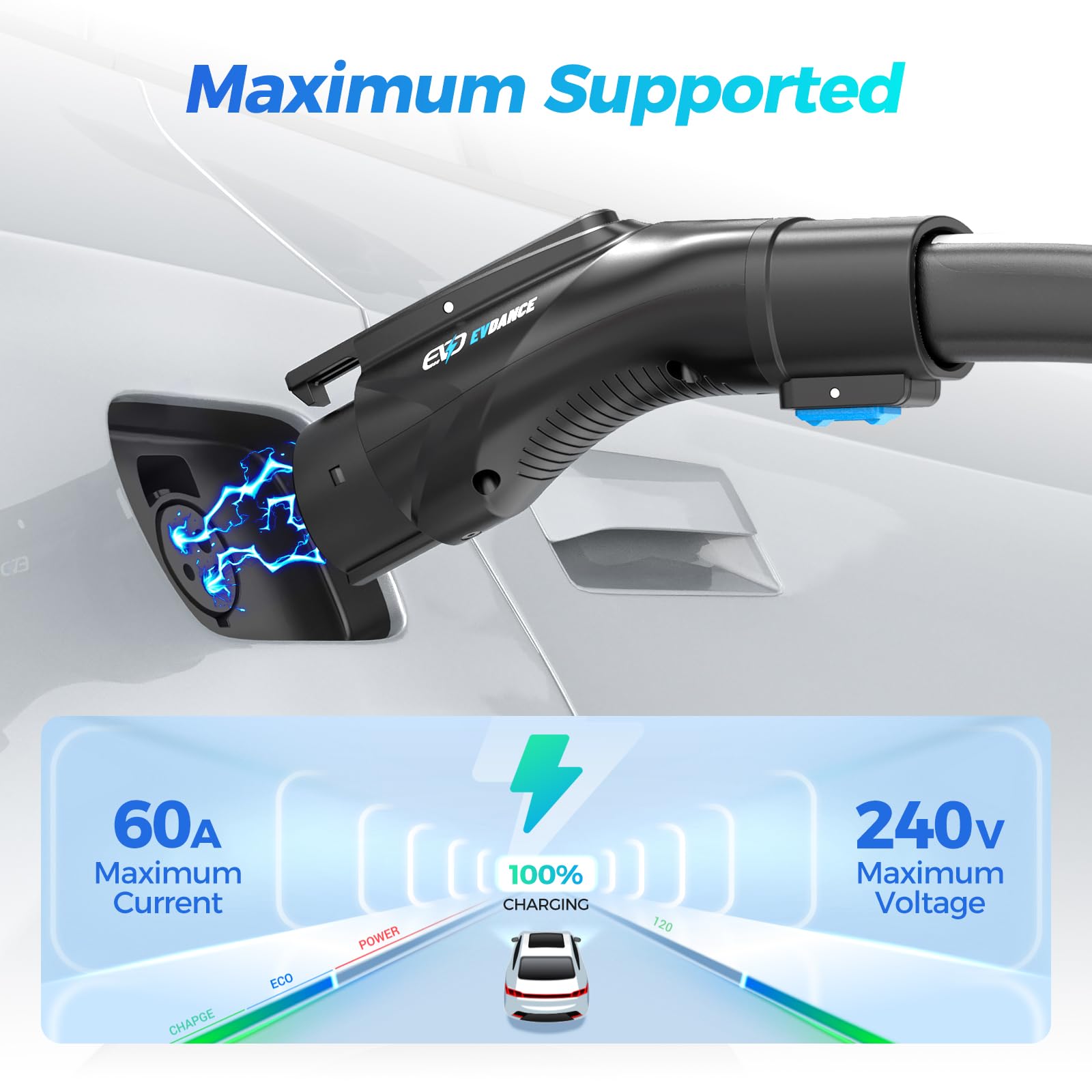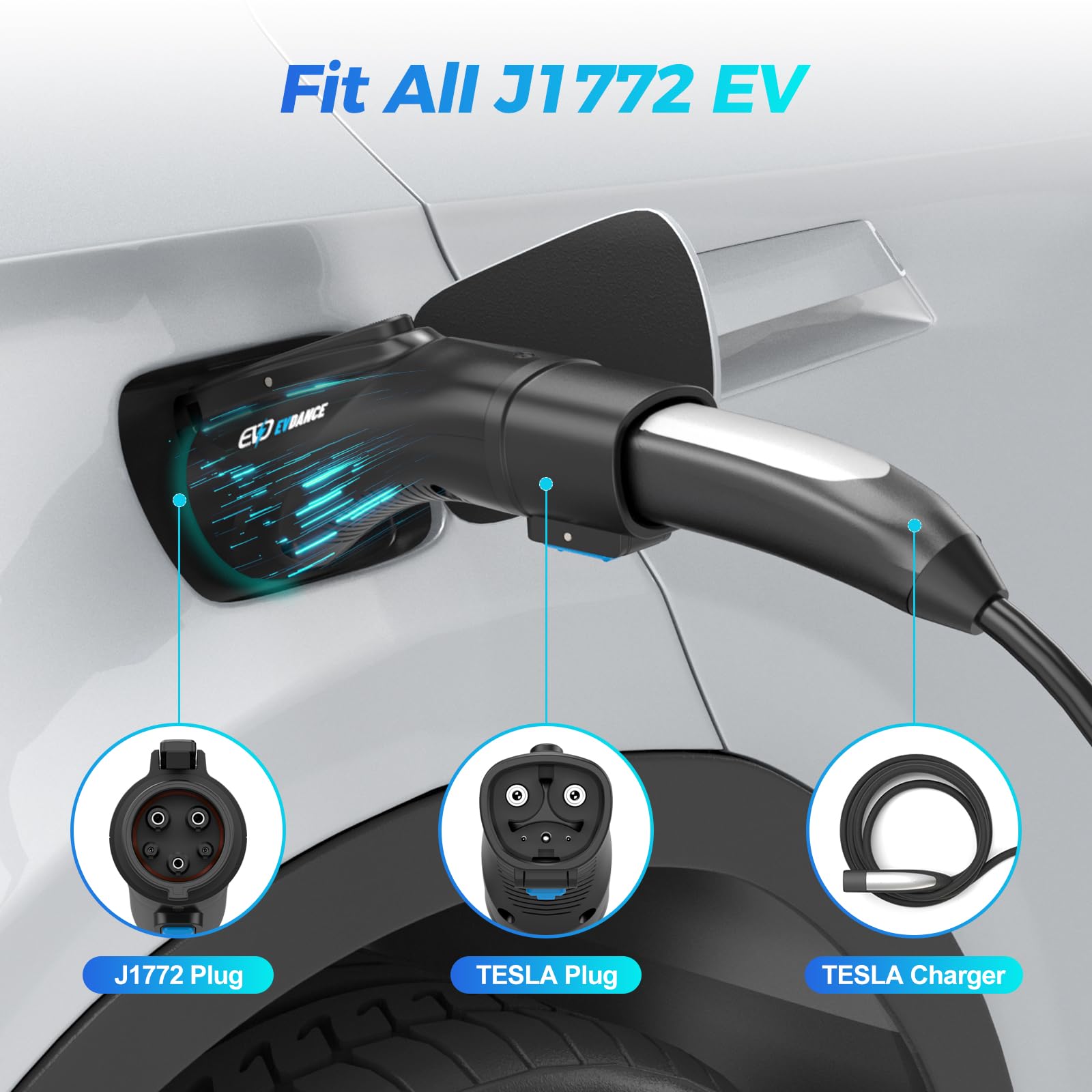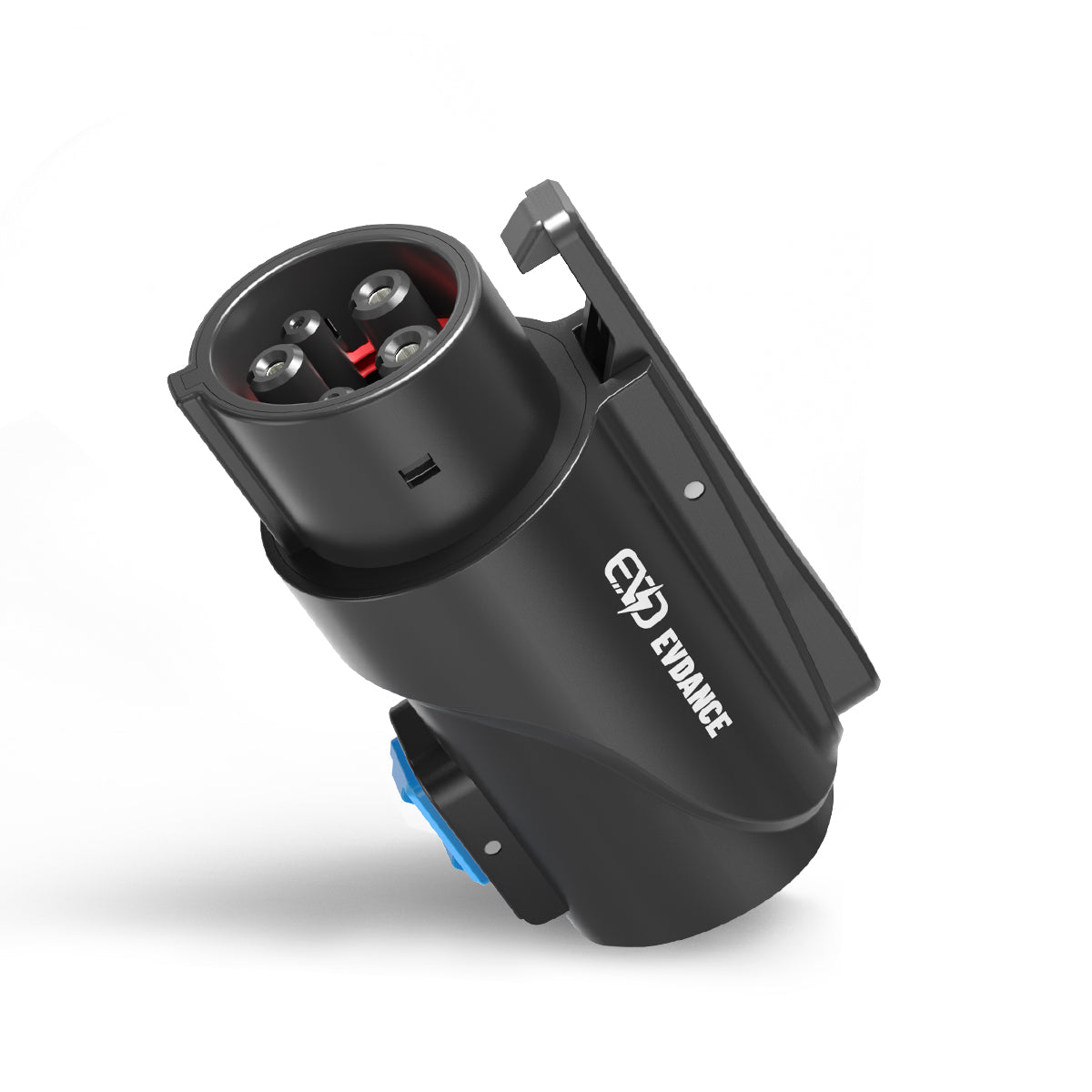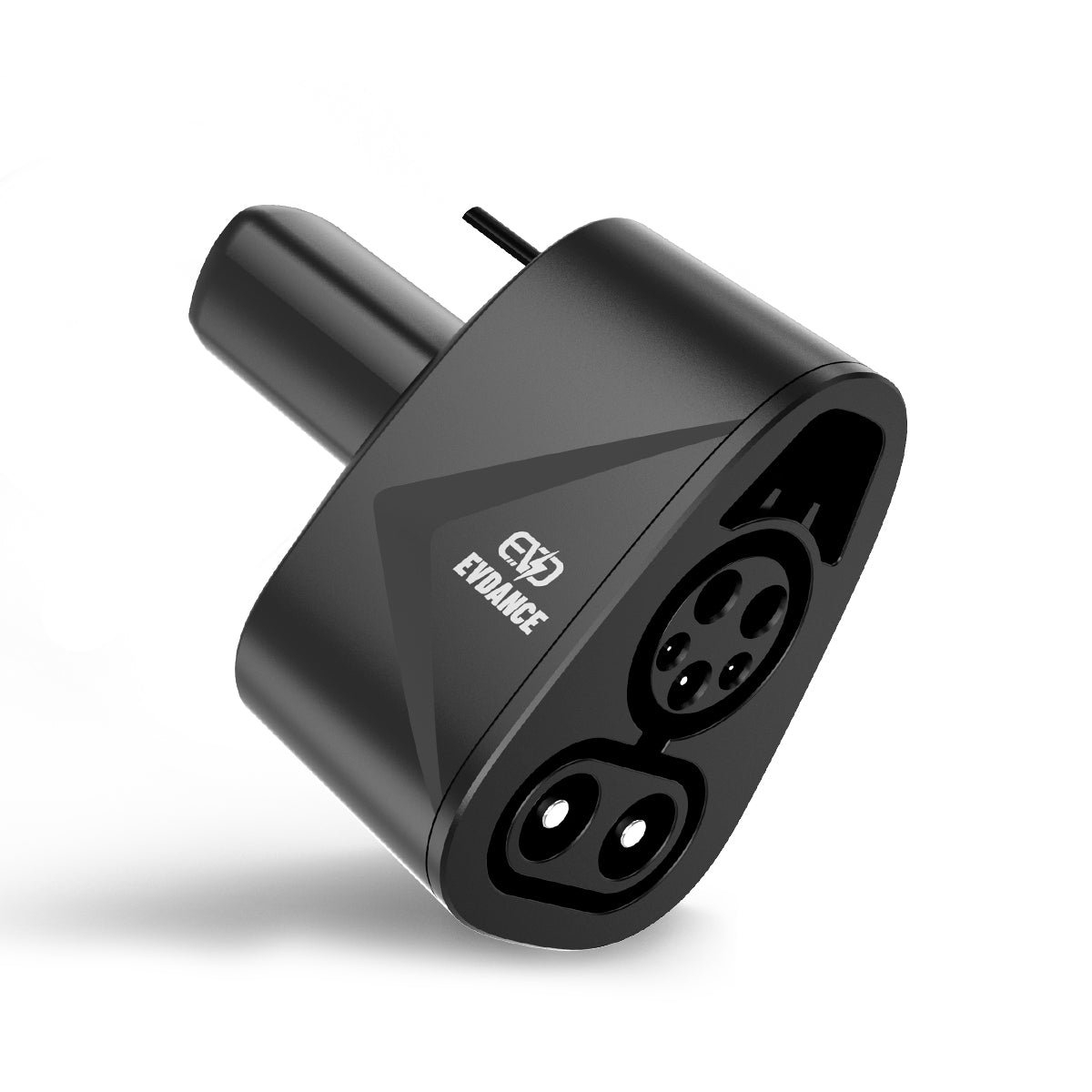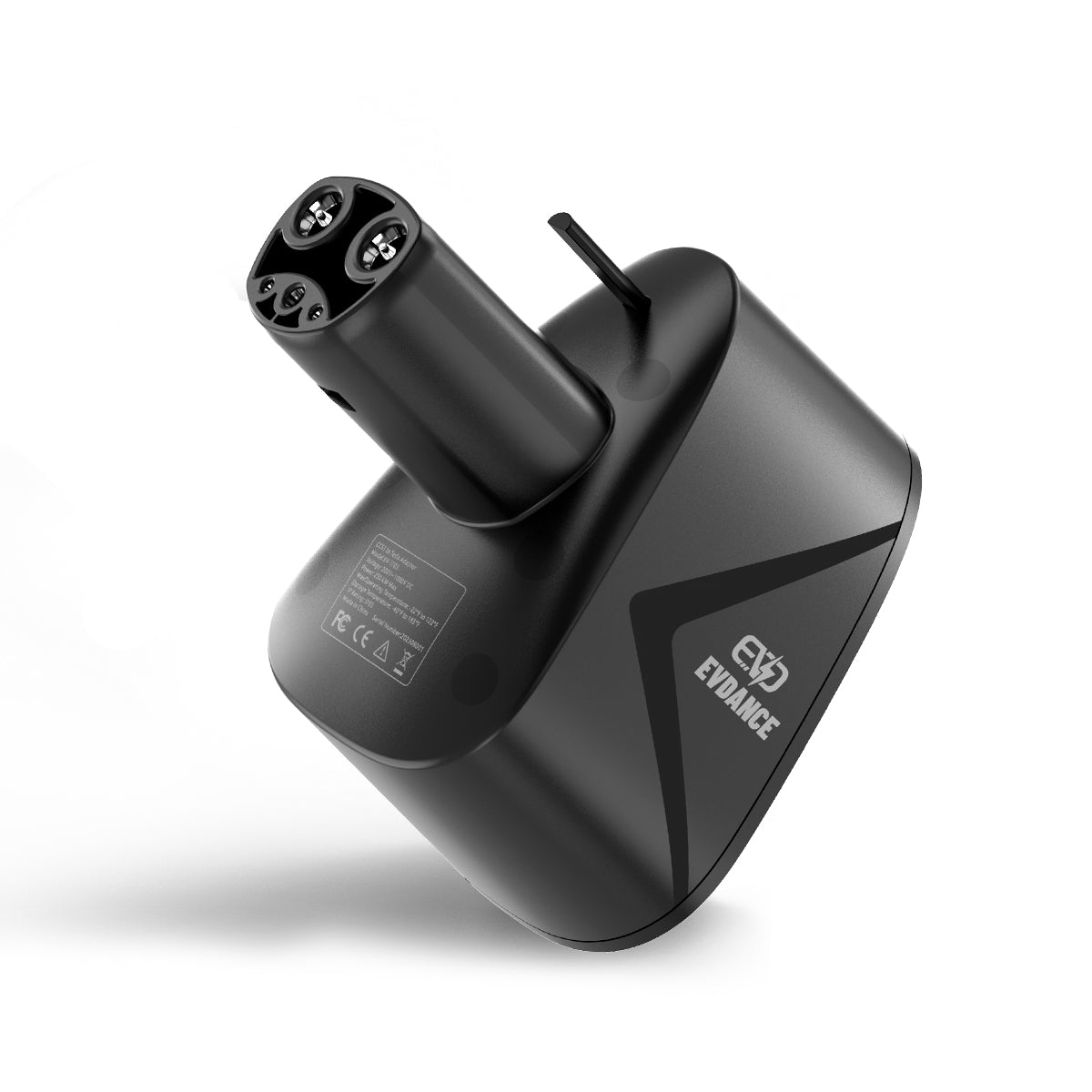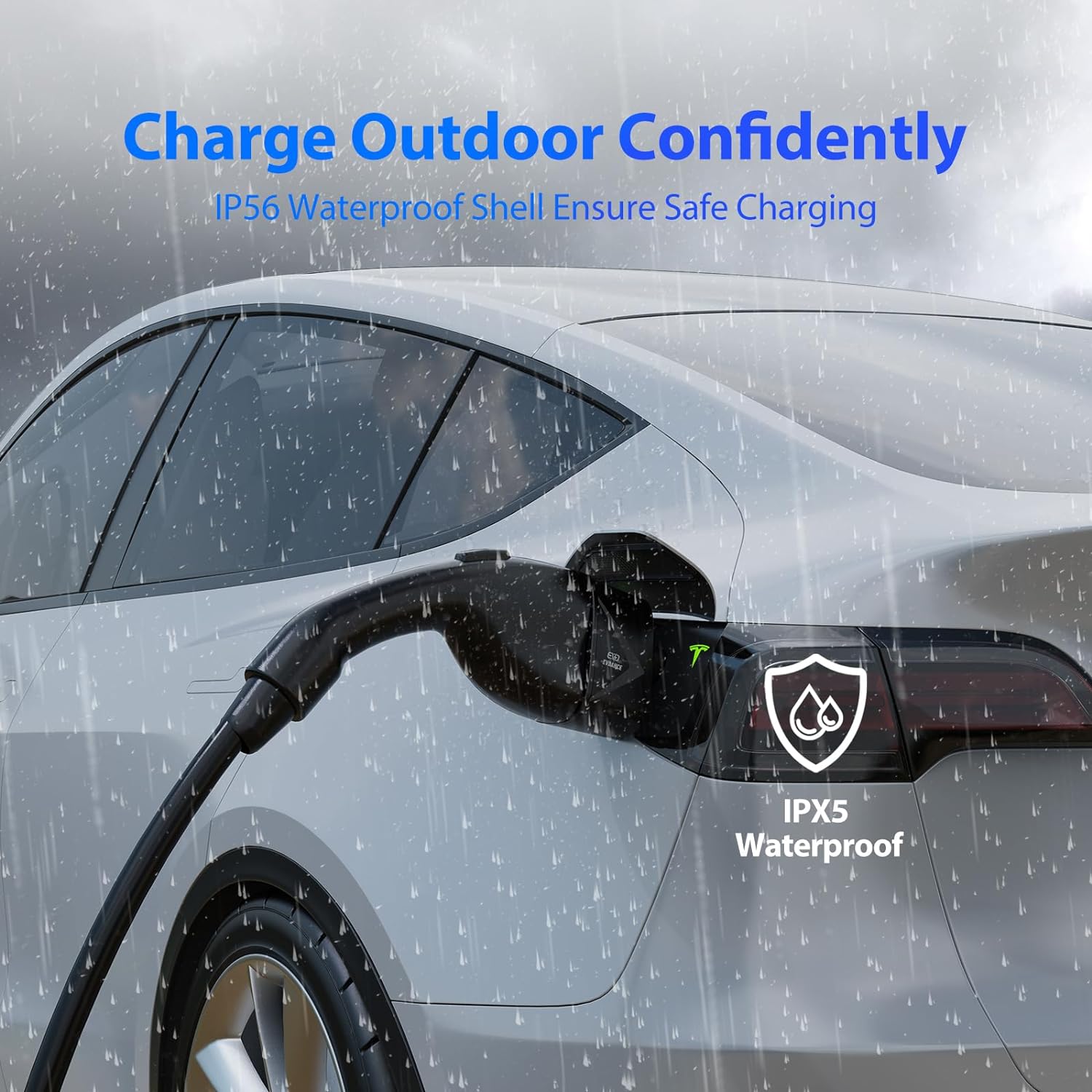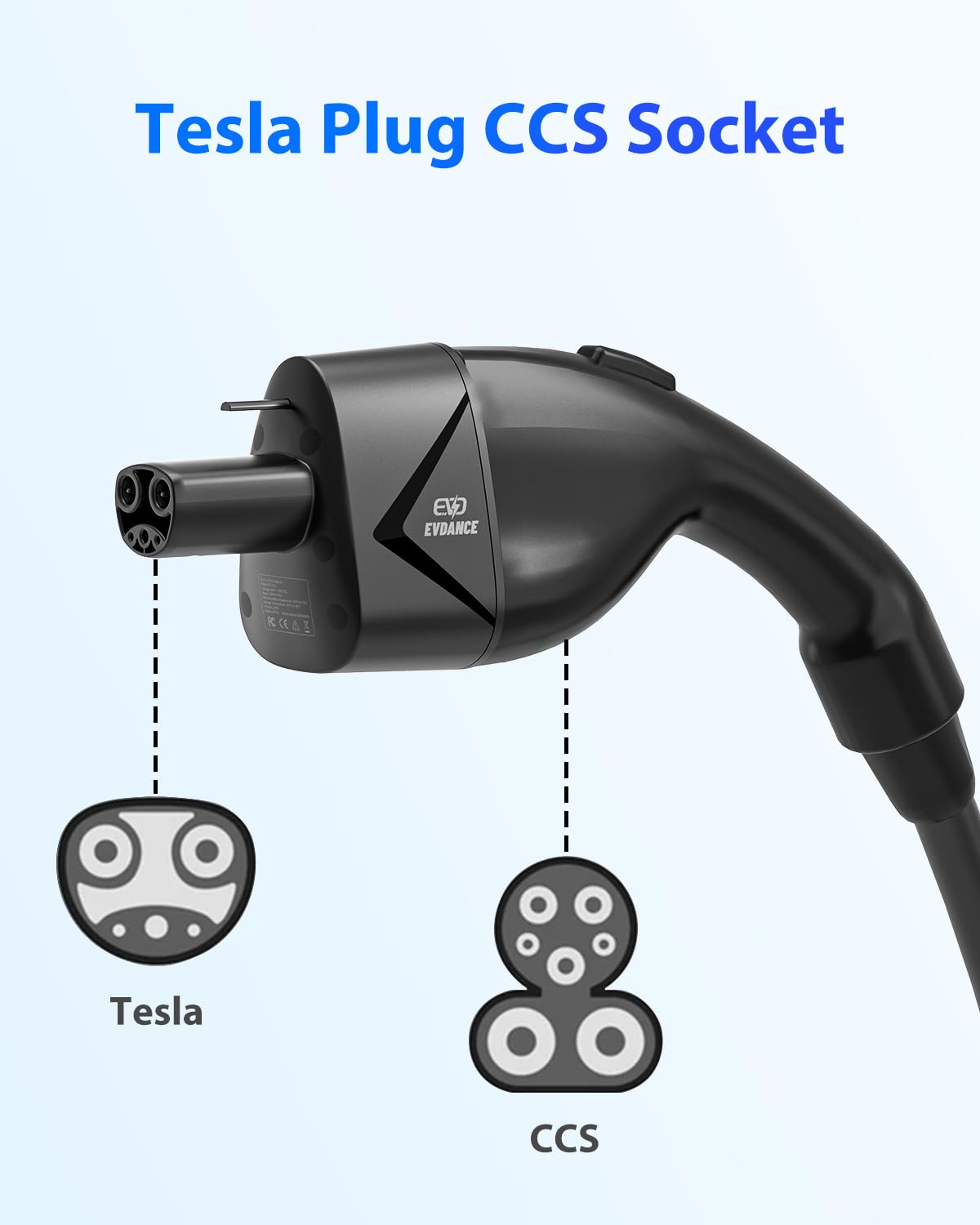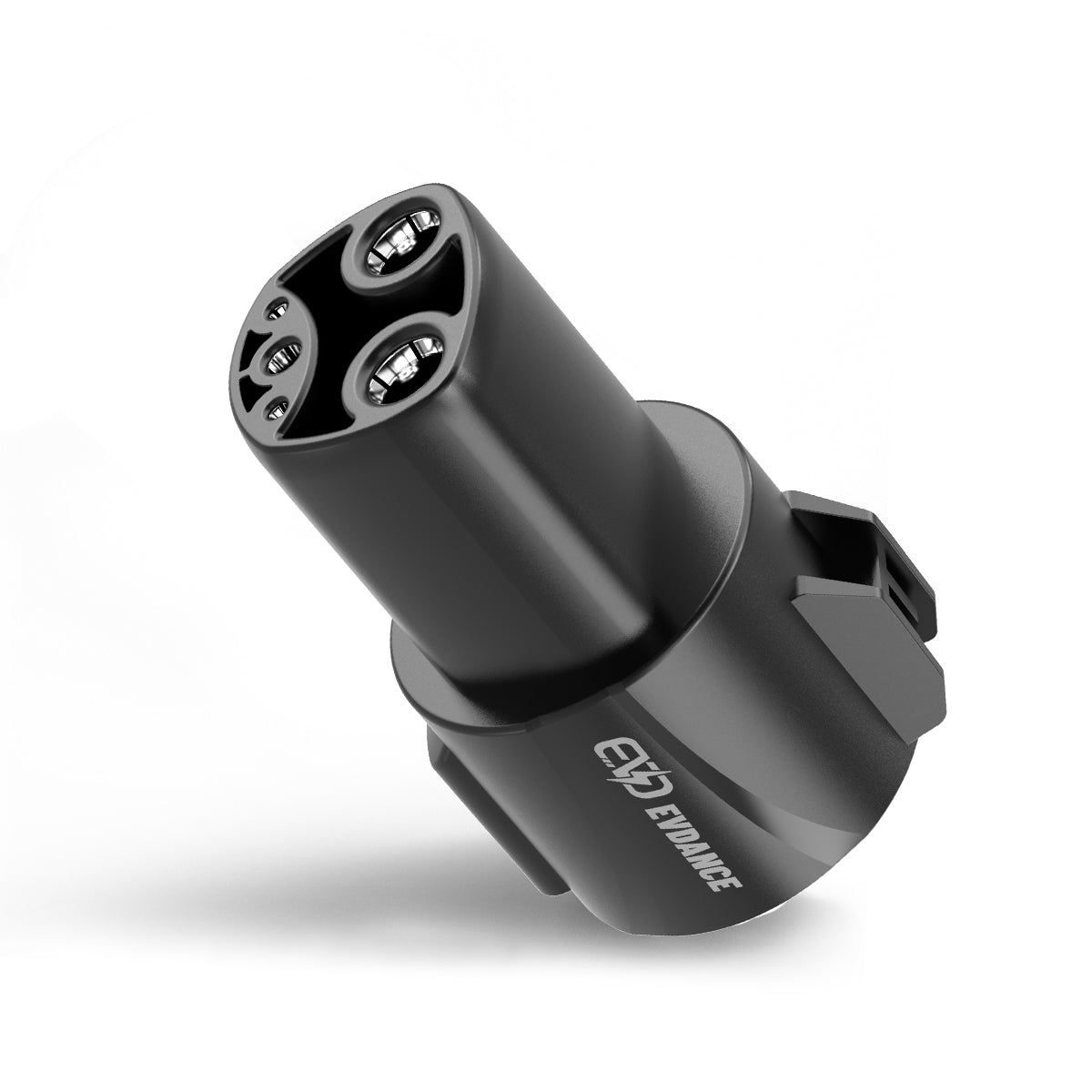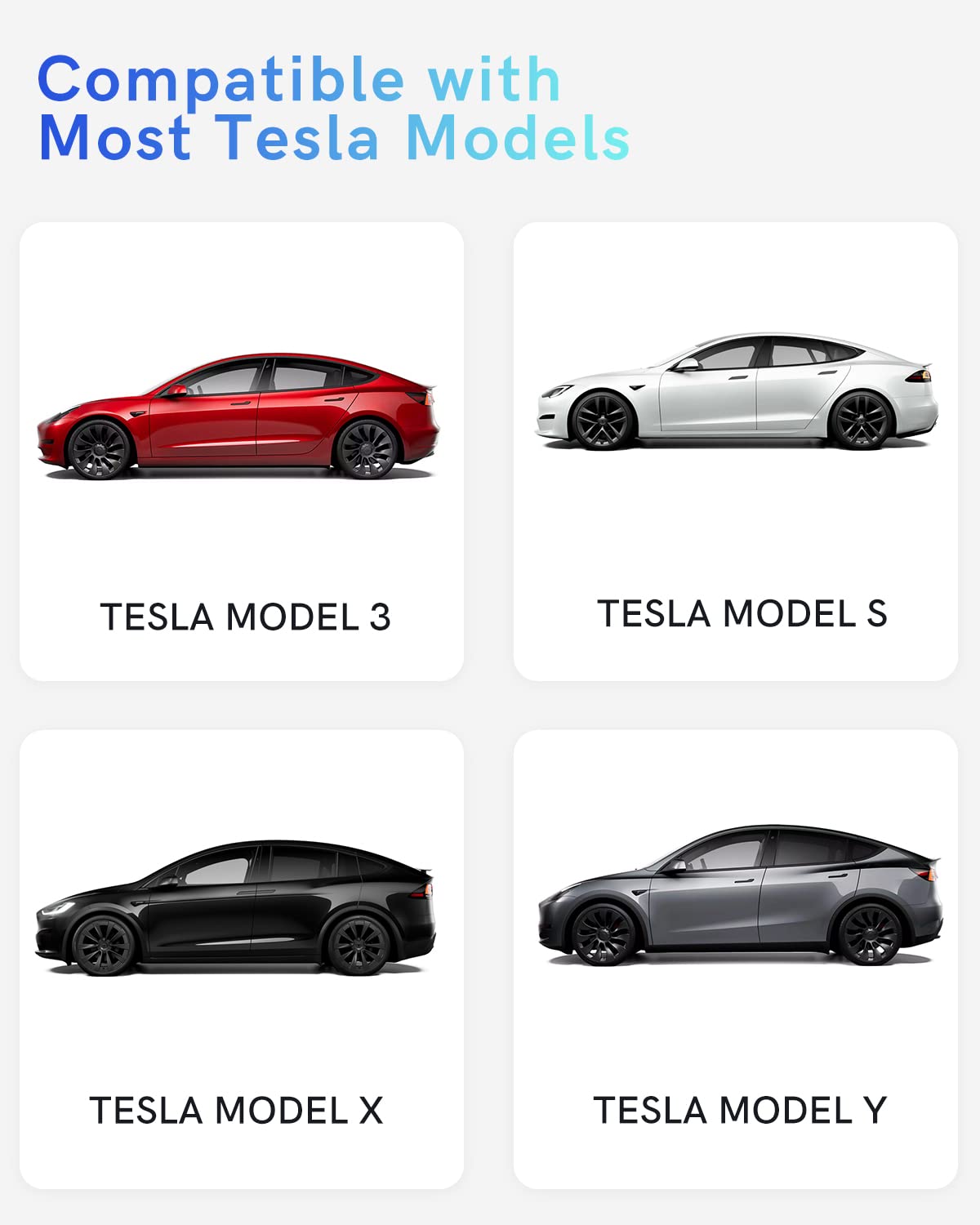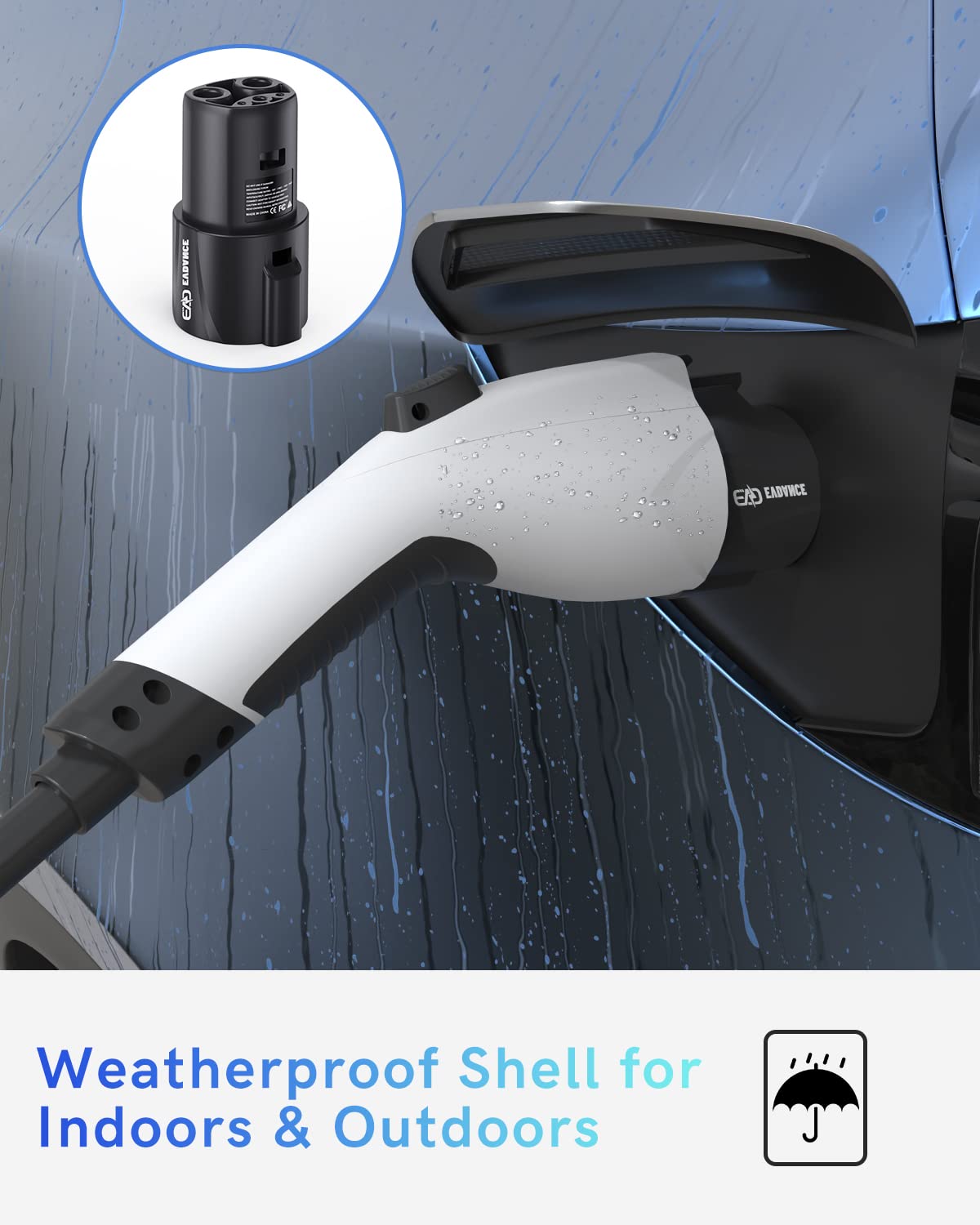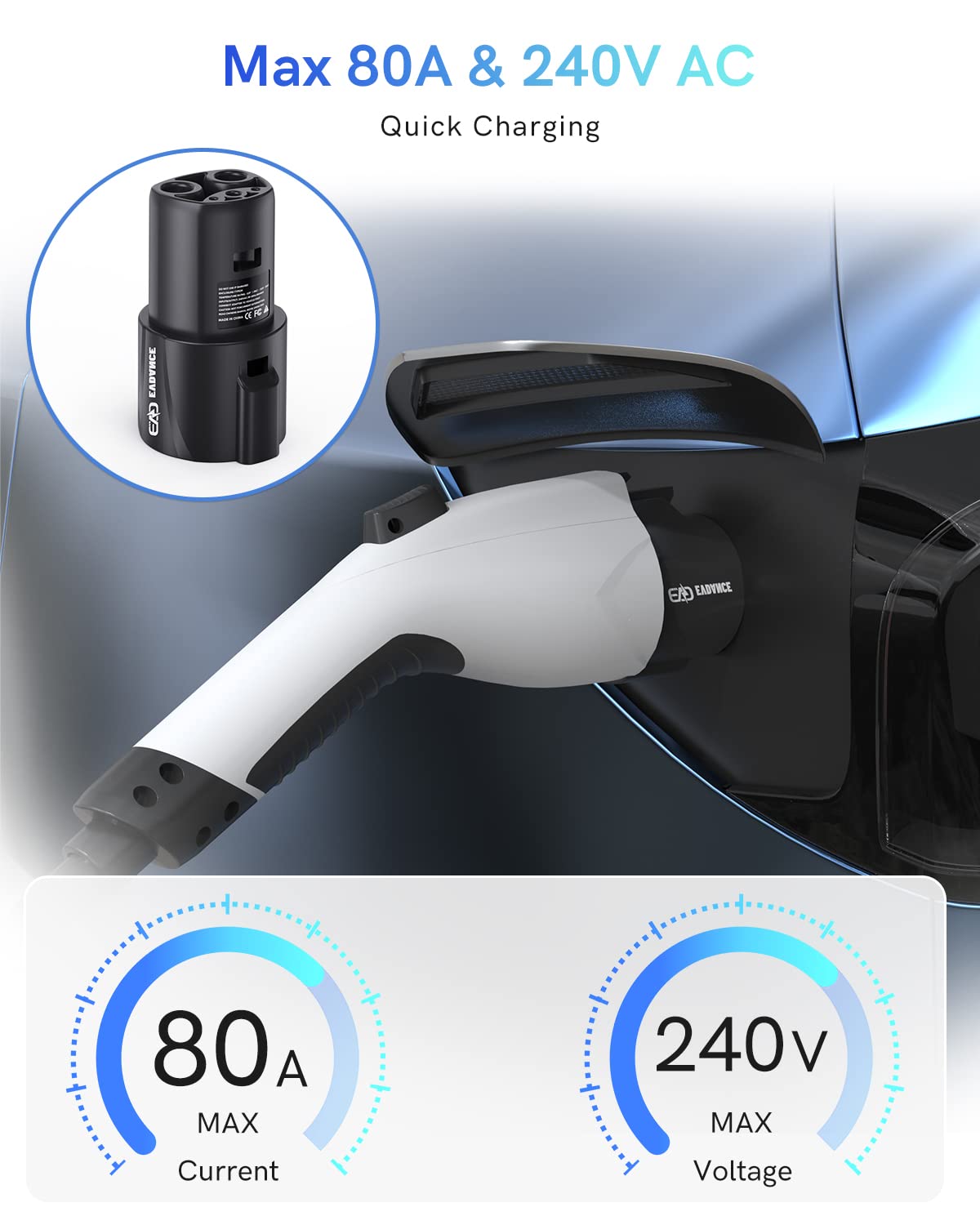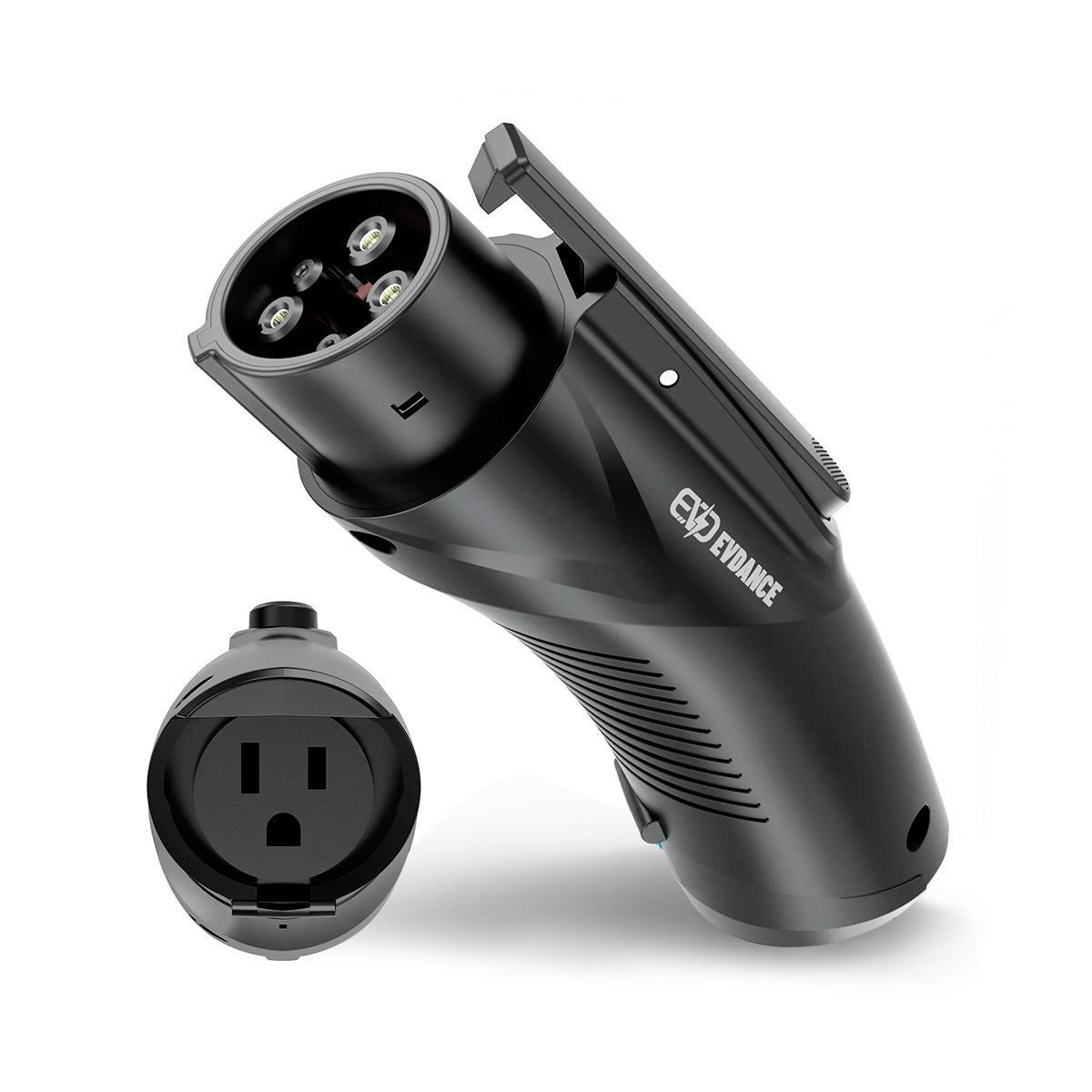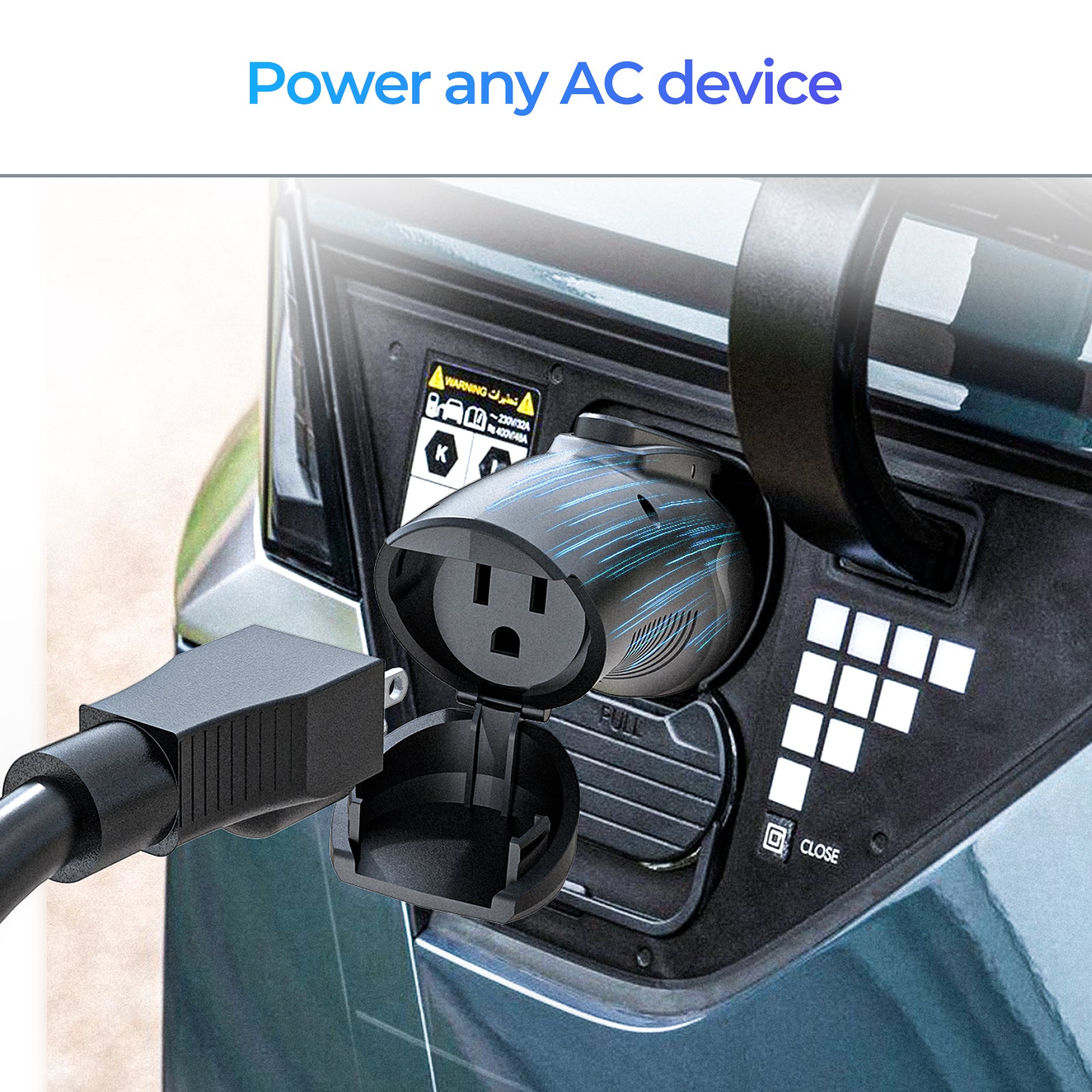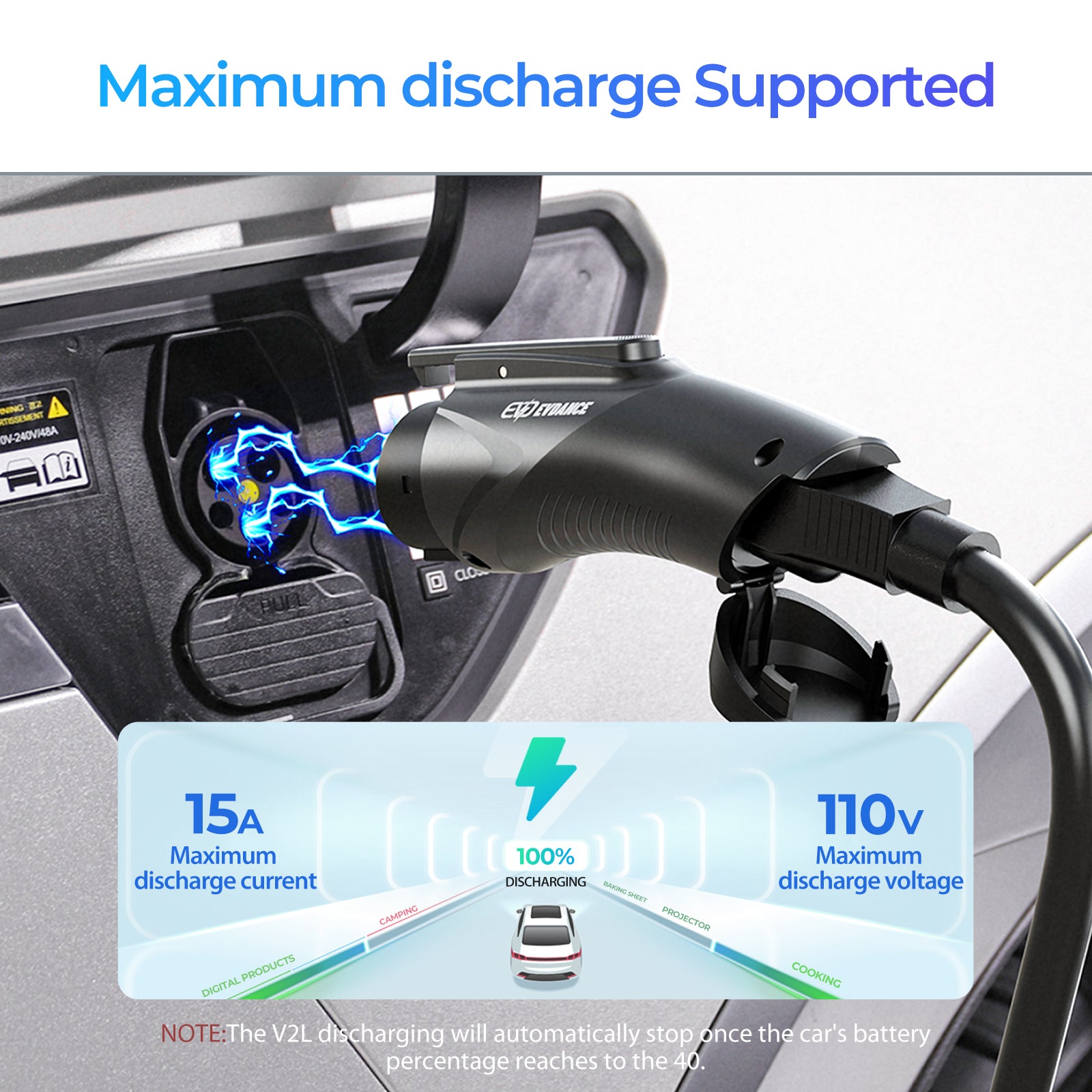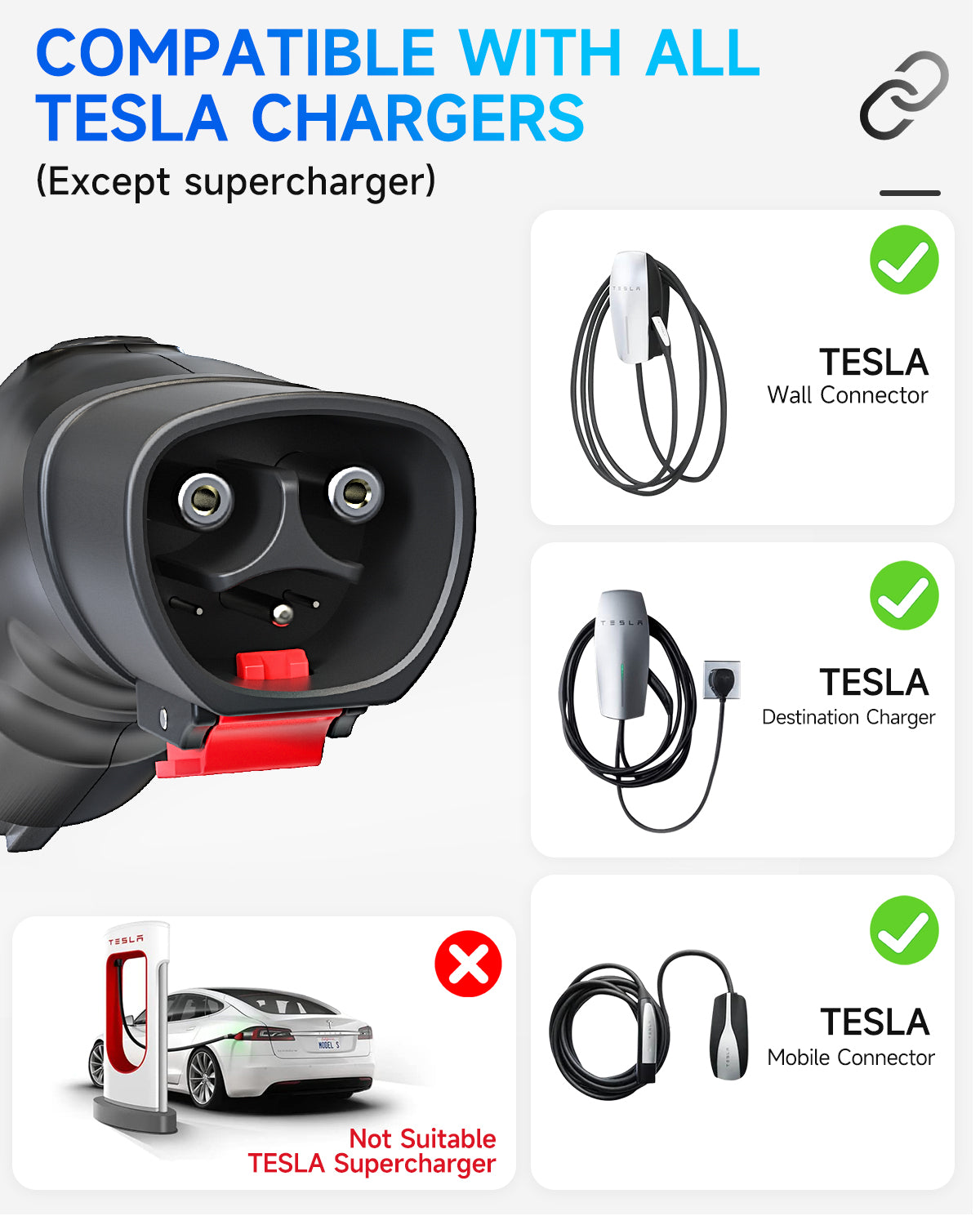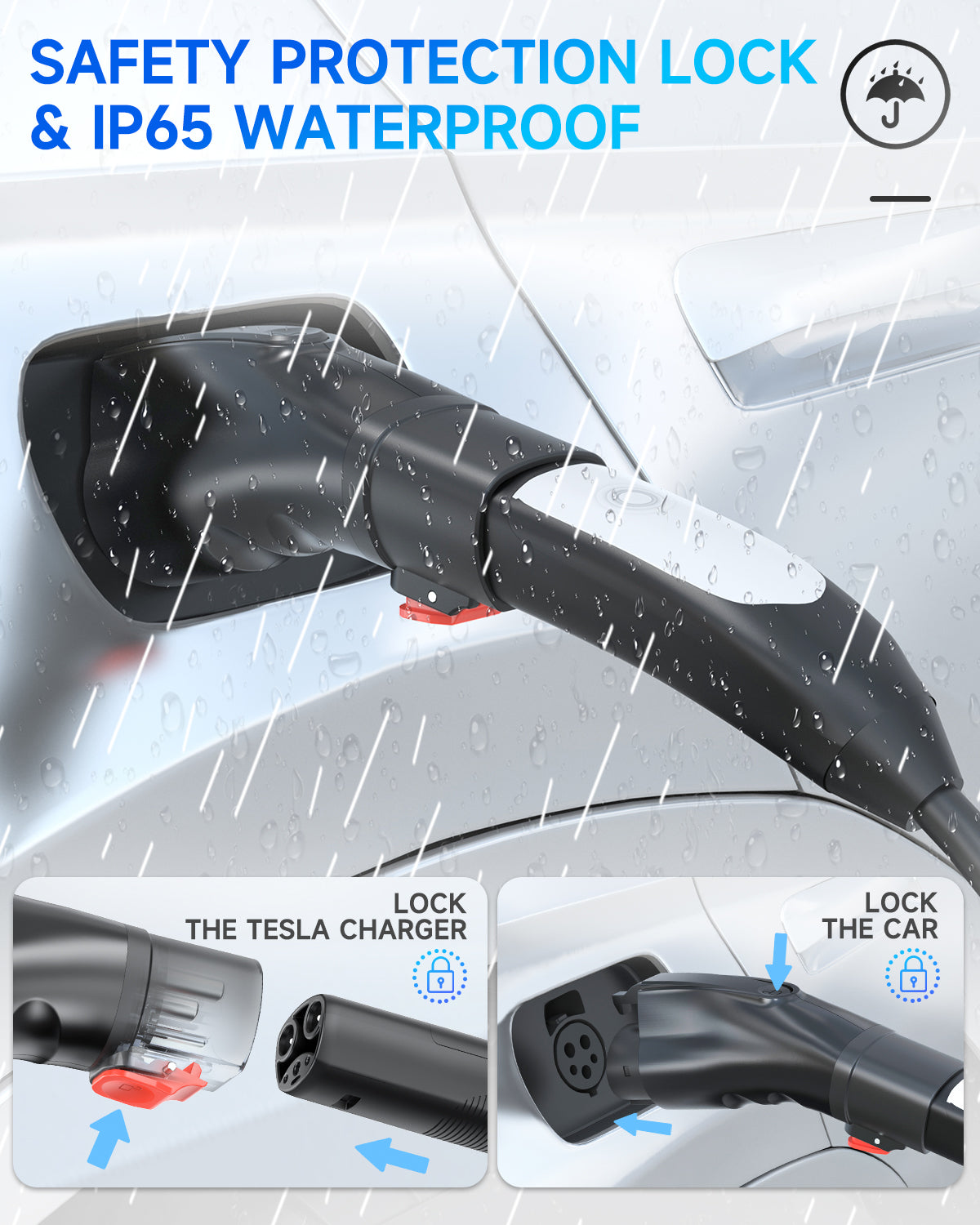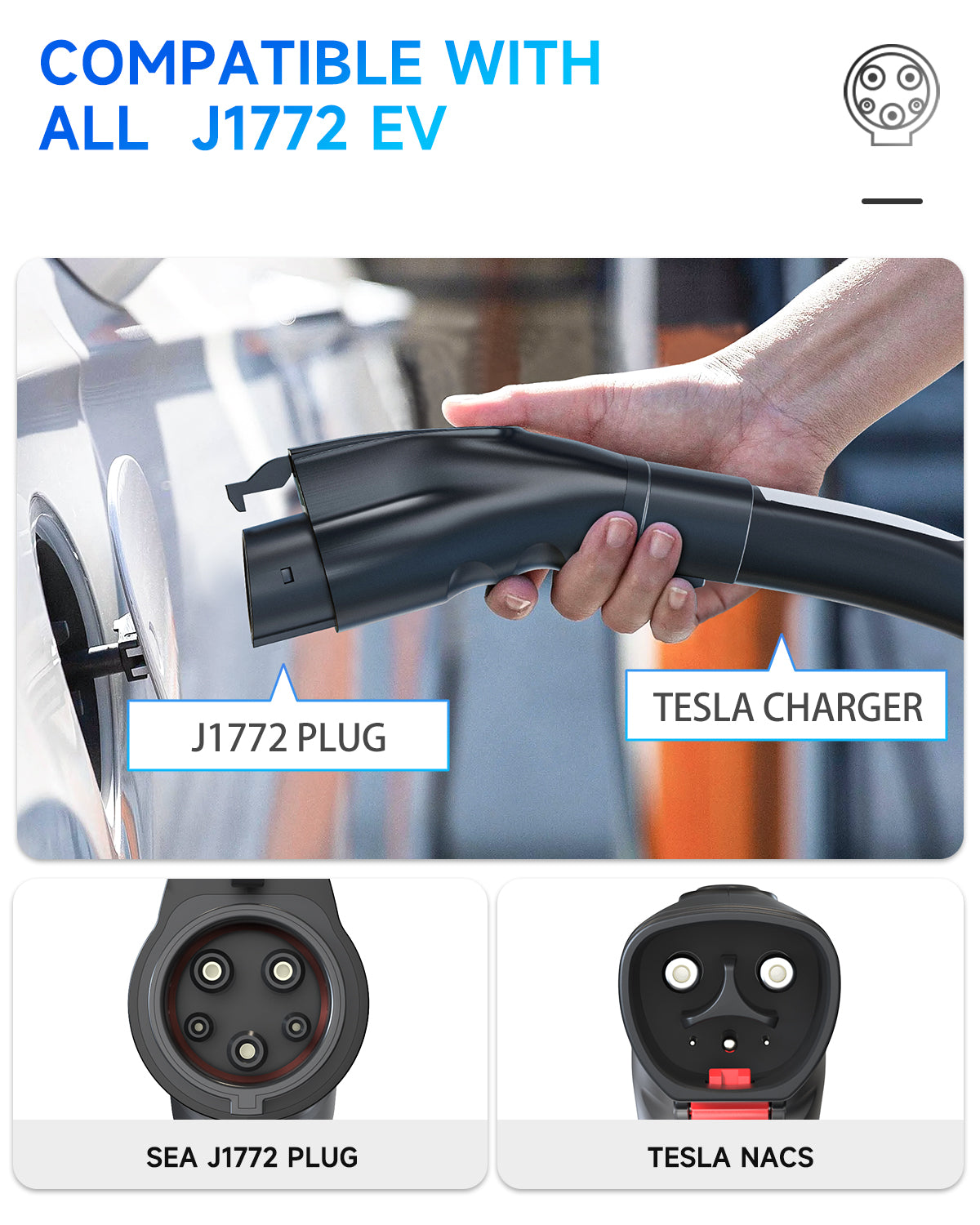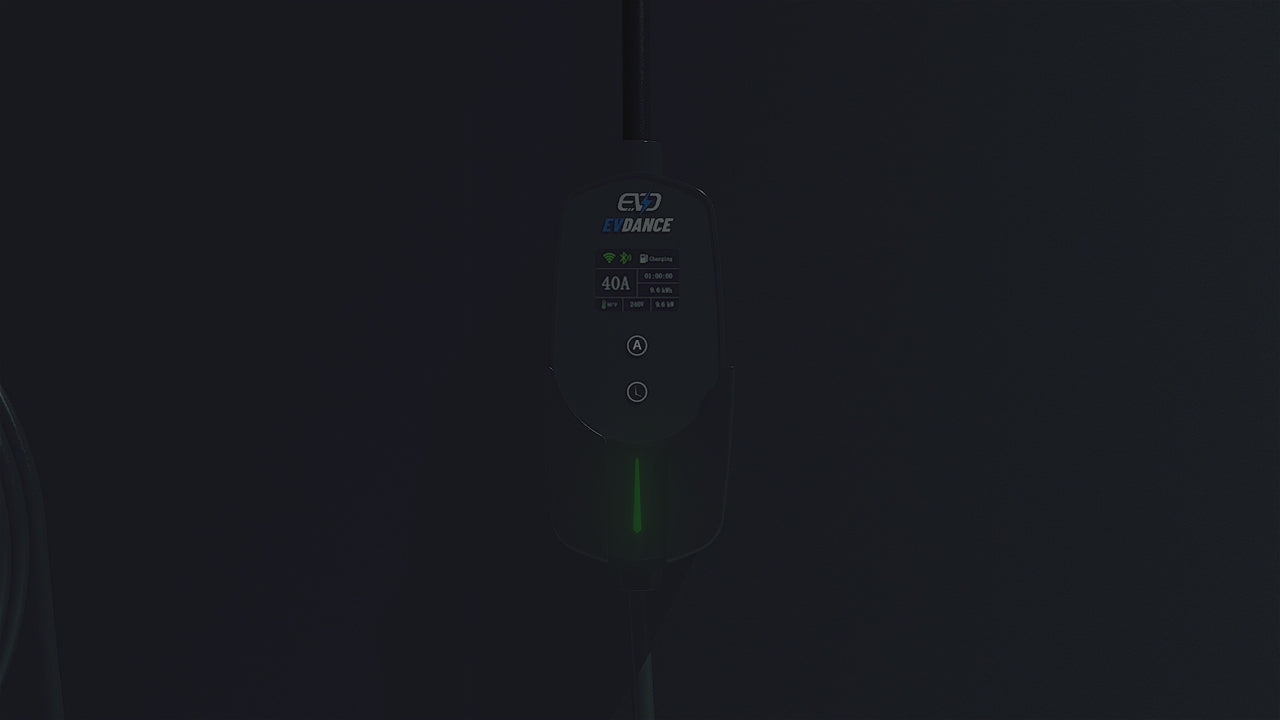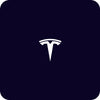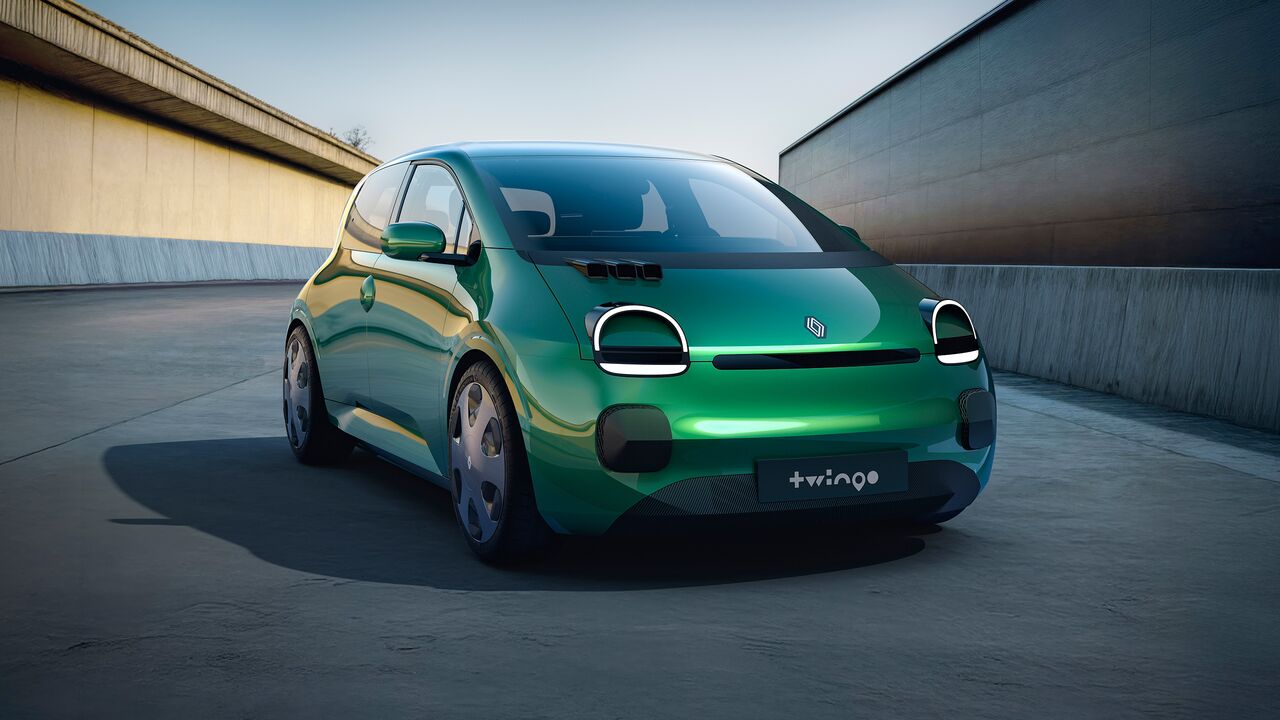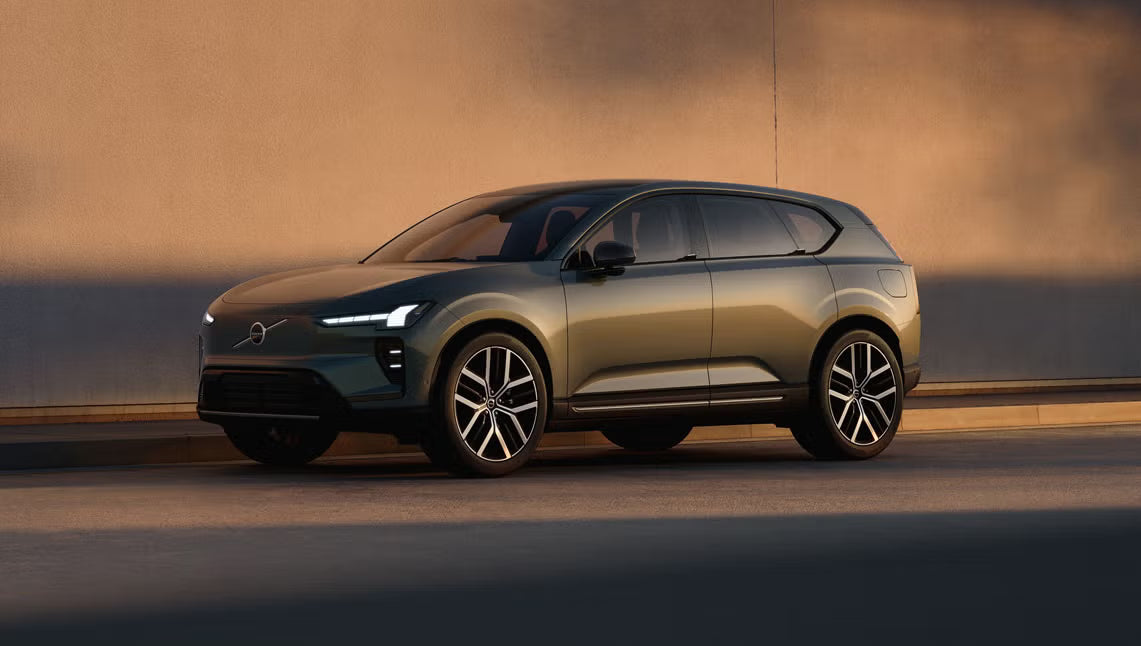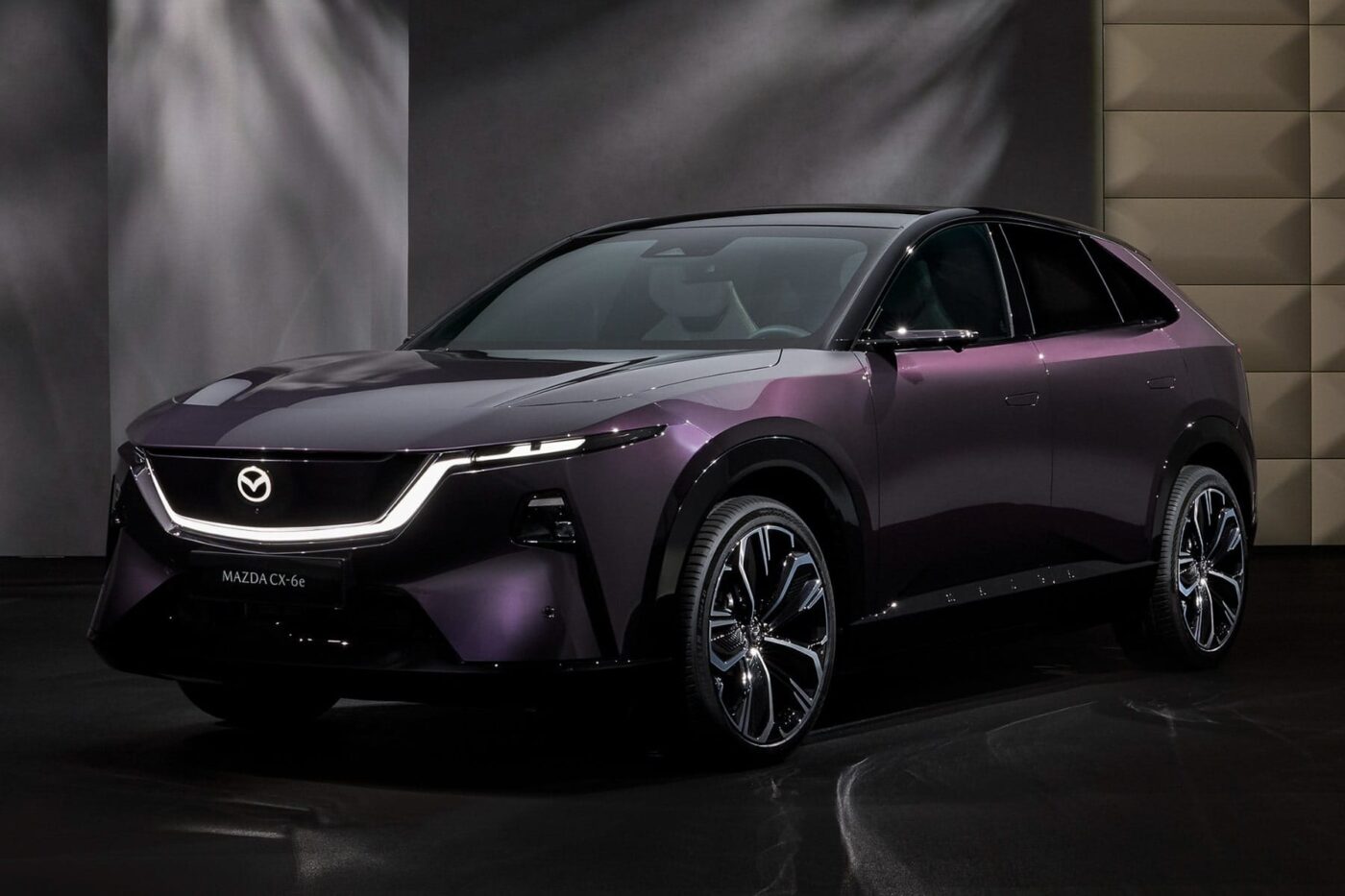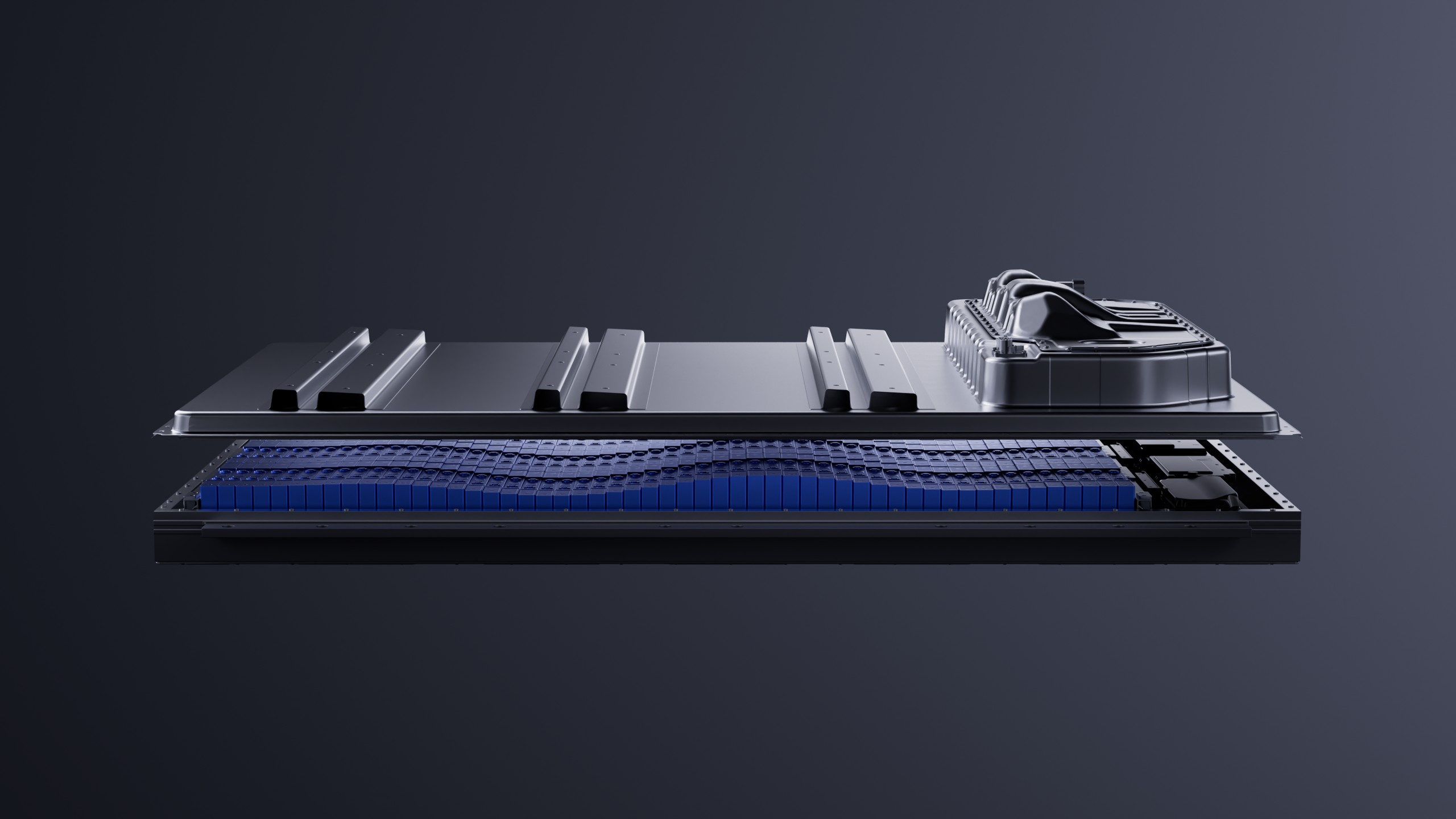COMME VU SUR
Meilleures ventes
Chargeur portable EVDANCE Niveau 1 et 2 NEMA 6-20 12/16 A Câble 25 pieds
Chargeur portable Tesla EVDANCE de niveau 1 et 2 | 110 V et 240 V | 16 A | NEMA 5-15 et 6-20
Chargeur portable pour véhicule électrique EVDANCE Flux niveau 1, prise NEMA 5-15, 12 A, J1772
Chargeur EV portable EVDANCE Flux niveau 1, prise NEMA 5-15, 12 A, NACS
Chargeur portable Tesla EVDANCE Flux Niveau 2 NEMA 14-50 40 A, compatible Wi-Fi
Chargeur EV portable EVDANCE niveau 2 NEMA 14-30 24A NACS
Chargeur de véhicule électrique portable EVDANCE niveau 2 NEMA 14-30 24 A J1772
EV Adapters
Adaptateur EVDANCE Pulse Fusion NACS DC vers CCS1
Adaptateur de charge EVDANCE Tesla (NACS) vers J1772 avec verrouillage de sécurité
Adaptateur de charge EVDANCE Mini Tesla (NACS) vers J1772 Max 80 A et 250 V
Adaptateur EVDANCE CCS1 vers NACS 250 kW
Adaptateur de charge EVDANCE SAE J1772 vers Tesla 80 A/240 V
Adaptateur EVDANCE V2L pour Hyundai Ioniq 5 et Ioniq 6,Kia EV6 15 A
Adaptateur de charge EVDANCE Tesla (Nacs) vers J1772 avec verrou de sécurité
RECOMMANDÉ PAR

Kim Java
Si vous vous rendez chez un ami et que sa voiture bloque le chargeur ou que le chargeur est dans un endroit difficile à atteindre, ou que vous voyagez et que vous n'arrivez tout simplement pas à atteindre le chargeur, vous pouvez utiliser la longueur supplémentaire dont vous avez besoin.

Robert Rosenfeld
La solution idéale pour recharger plusieurs voitures sans effort ! Durable, fiable et facile à utiliser en extérieur. Exactement ce dont j'avais besoin !

Walter Schulze
Lorsque vous êtes en voyage et que vous vous rendez dans un hôtel équipé d'une borne de recharge pour véhicule électrique, le PlugShare vous indique qu'elle est disponible et fonctionnelle, et à votre arrivée, elle est complètement déchargée. C'est là que la rallonge EVDANCE entre en jeu.
Compatibilité des véhicules électriques
Assistance clientèle
Lundi - Vendredi
Assistance clientèle 24h/24 et 7j/7
Garantie d'un an
EVDANCE couvre une période de 12 mois à compter de la date d'achat.
Livraison rapide et gratuite
Livraison rapide et gratuite aux États-Unis, en Allemagne et au Canada (48 à 72 heures)
Paiement sécurisé
Sur EVDANCE, vos informations de paiement sont traitées en toute sécurité
FAQ
Quels types de chargeurs pour véhicules électriques sont disponibles et lequel me convient le mieux ?
Il existe principalement trois types de chargeurs pour véhicules électriques : les chargeurs de niveau 1, de niveau 2 et les chargeurs rapides CC. Les chargeurs de niveau 1 utilisent une prise domestique standard et sont idéaux pour la recharge nocturne à domicile. Les chargeurs de niveau 2 nécessitent une prise de 240 V et chargent plus rapidement, ce qui les rend adaptés à un usage domestique et public. Les chargeurs rapides CC offrent une charge rapide et sont couramment installés dans les bornes de recharge publiques.
Combien de temps faut-il pour recharger un véhicule électrique ?
Le temps de charge varie selon le type de chargeur et la capacité de la batterie du véhicule. Les chargeurs de niveau 1 prennent entre 8 et 20 heures pour une charge complète, les chargeurs de niveau 2 entre 4 et 8 heures, et les chargeurs rapides CC peuvent charger jusqu'à 80 % de la batterie en 20 à 40 minutes.
Quels sont les coûts associés à l’installation d’une borne de recharge pour véhicule électrique à domicile ?
Le coût d'installation d'une borne de recharge pour véhicule électrique à domicile dépend du type de borne, de la complexité de l'installation et des tarifs de main-d'œuvre locaux. Les bornes de niveau 1 sont généralement moins chères car elles peuvent utiliser les prises existantes, tandis que les bornes de niveau 2 peuvent nécessiter des mises à niveau électriques et coûter entre 500 $ et 2 000 $, installation comprise. Des mesures incitatives et des rabais peuvent être offerts pour compenser ces coûts.
Existe-t-il des incitatifs ou des rabais pour l’installation de chargeurs pour véhicules électriques ?
Oui, de nombreuses régions offrent des incitations et des rabais pour l'installation de bornes de recharge pour véhicules électriques. Ces mesures peuvent provenir des gouvernements fédéral, étatiques ou locaux, ainsi que des entreprises de services publics. Ces incitations peuvent couvrir une partie des frais d'installation, offrir des crédits d'impôt ou des rabais à l'achat de la borne. Il est conseillé de consulter les ressources locales pour connaître les programmes spécifiques disponibles dans votre région.
Quelle est la différence entre un connecteur et un chargeur ?
Un connecteur désigne la prise physique reliant le véhicule électrique à la borne de recharge, tandis qu'un chargeur désigne l'ensemble du système qui alimente le véhicule en électricité. Il existe différents types de connecteurs selon la région et la norme de recharge, comme le Type 1 (J1772) en Amérique du Nord, le Type 2 (Mennekes) en Europe, et CHAdeMO ou CCS pour la recharge rapide.
Comment puis-je demander des crédits d’impôt pour compenser mes coûts d’installation de borne de recharge pour véhicules électriques ?
Vous souhaitez savoir comment bénéficier d'un crédit d'impôt pour l'installation d'une borne de recharge pour véhicule électrique ? Cliquez ici. Crédit d'impôt VE 2024 : La meilleure façon d'économiser sur votre véhicule électrique.
Vous n'avez pas trouvé vos questions ?
Accédez à notre banque de questions d'assurance qualité pour plus de réponses !
ACTUALITÉS SUR LES VE
Restez informé des dernières avancées, tendances commerciales, mises à jour des politiques et évolutions du secteur qui façonnent l'avenir de la mobilité électrique. Des startups du secteur aux constructeurs automobiles traditionnels, cette section offre un aperçu pertinent de l'évolution rapide du secteur des véhicules électriques : innovations technologiques, performances du marché, infrastructures de recharge, etc.
BYD Seal U Tops Europe’s Plug-In Hybrid Sales in 2025
The BYD Seal U topped Europe’s plug-in hybrid sales in 2025 with over 72,000 units sold, outperforming established rivals despite modest specs, thanks largely to aggressive pricing and strong market demand.
Renault Electric Vehicle Sales Surge Across Europe in 2025
Renault recorded a 72% surge in electric vehicle sales across Europe in 2025, led by the Renault 5 E-Tech, strong Scenic E-Tech growth, and plans for more affordable EVs and electric vans in the coming years.
Lemonade Cuts Tesla Insurance Costs for Drivers Who Use FSD Regularly
Lemonade is offering Tesla owners insurance discounts of around 50% per mile when Full Self-Driving is active, using vehicle telemetry and software data to price risk more precisely than traditional insurers.
Volvo EX60 Brings 400-Mile Range and New Safety Tech to the Luxury EV Segment
The Volvo EX60 signals a major EV reset for the brand, combining a 400-mile range, ultra-fast charging, NACS support, new safety technology, and AI-driven software in a competitive luxury electric SUV.
Mazda Delays Its Next EV as Hybrid Strategy Takes Priority
Mazda has postponed its next-generation EV program, citing tariffs, fading incentives, and regulatory uncertainty. The move highlights a broader industry shift toward hybrids as automakers reassess EV timing and risk.
How LFP Batteries Overtook Nickel-Based Cells in the EV Market
LFP batteries became the world’s most widely used EV chemistry in 2025, driven by lower costs, safer materials, and rapid adoption in China and Europe, reshaping battery strategy across the auto industry.




